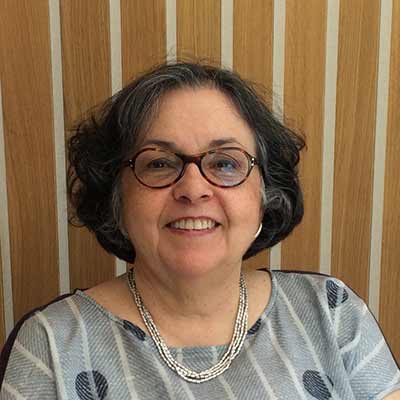 Alice Abreu Director, GenderInSITE/Directrice, GenderInSITE |
A leading expert in gender and science, Alice Abreu has a prestigious academic career and leads an important initiative in gender and science for sustainable development. |
| Alice Abreu, Director of GenderInSITE, is Emeritus Professor of the Federal University of Rio de Janeiro (UFRJ) in Brazil. PhD in Social Sciences from the University of São Paulo Brazil (1980), and M.Sc. in Sociology from the LSE of the University of London (1971). Full Professor of Sociology at the UFRJ until 2005, she has published extensively in sociology of work and gender. She also held a number of important positions within the academic community of Brazil and internationally. | |

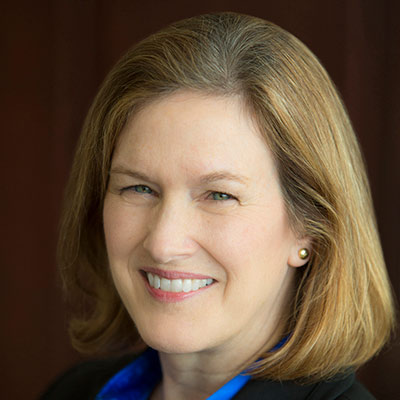 |
|
| Elyse Allan President and CEO, GE Canada As President and CEO, GE Canada and Vice President GE, Elyse has led GE Canada’s growth across its business portfolio while also strategically building GE’s Canadian innovation, digital and production capabilities. She contributes to building Canada’s competitiveness and public policy framework through board work at the C.D. Howe Institute, Conference Board, and MaRS DD while also having served on numerous government advisory boards. In 2014 she was appointed Member of the Order of Canada. Previously her career spanned several industries in the U.S. and Canada. Elyse sits on the Brookfield Asset Management Board of Directors. |
|
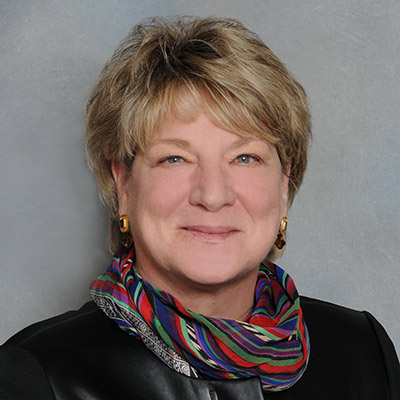 |
I am passionate about achieving gender equity in my lifetime. Establishing a Framework to Address Gender Equality in Organizations. |
| Janet Bandows Koster Executive Director and Chief Executive Officer, Association for Women in Science (AWIS) Janet Bandows Koster, is CEO of the Association for Women in Science (AWIS). Her newest book "Equitable Solutions for Retaining a Robust STEM Workforce,” addresses systemic factors leading to the dearth of women in STEM careers. She has authored numerous reports and presented at professional meetings about issues at the nexus of gender and STEM. Her work has appeared in the Chronicle of Higher Education, Inside Higher Ed, Forbes, the Journal of International Innovation, and Open Science EU. In 2016, she was named one of the 100 Inspiring Women in STEM by INSIGHT into Diversity. |
|
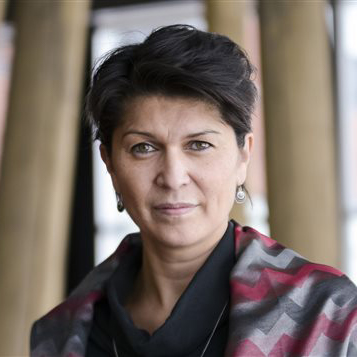 |
Indigenous women: from erasure to engagement. Results from research with Atikamekw women on land governance. Resolute and devoted to Indigenous women, their history and their future, Suzy Basile aims to raise awareness of the experiences of their ancestors and thus participate in a genuine decolonization of how Indigenous peoples are viewed. |
| Suzy Basile Professor, School of Indigenous Studies, Université du Québec en Abitibi-Témiscamingue (UQAT) Suzy Basile comes from the Atikamekw community of Wemotaci. She has a Bachelor’s degree and a Master’s degree in Anthropology. She is professor with the School of Indigenous Studies the Université du Québec en Abitibi-Témiscamingue (UQAT), at the Val-d’Or campus. She is member of the steering committee of DIALOG Aboriginal Peoples Research and Knowledge Network. She recently defended a thesis in the Environmental Sciences Ph.D. program at UQAT, about the role and the place of Atikamekw women in land and natural resource governance. Basile was involved in the development process of the Assembly of the First Nations of Quebec and Labrador’s Research Protocol (2005, 2014). She developed the Guidelines for Research with Aboriginal Women for Quebec Native Women Inc., published in 2012. She has also co-led varied works on the subject of the ethics of research with Indigenous peoples. |
|
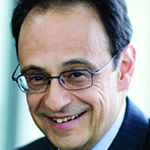 |
Honorary Professor, and until recently the Scientific Director of the Fonds de recherche du Québec – Santé (FRQS). His areas of expertise are health technology assessment, health services and clinical epidemiology research. |
| Renaldo Battista Honorary Professor, Université de Montréal Dr. Renaldo Battista, M.D., M.P.H., Sc.D., F.R.C.P. (C) is Honorary Professor at the Université de Montréal. He was until recently the Scientific Director of the FRQS (2012-2017). He was Professor at Université de Montréal’s Department of Health Administration (2004-2012) and its Director (2004-2008). He was Professor in the Departments of Epidemiology and Biostatistics and of Medicine at McGill University (1982-2003). He was President of the Quebec Council for Health Technology Assessment (1994-2000), as well as President and CEO of the Quebec Agency for Health Services and Technology Assessment (2000-2004). In 2006, Dr. Battista was elected member of the Canadian Academy of Health Sciences. And more recently, he received the prestigious Dr. Jill M. Sanders Award of Excellence in HTA in 2015. |
|
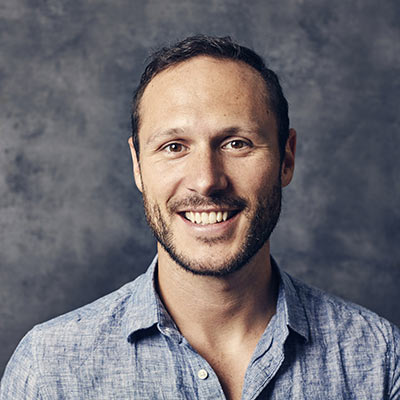 |
|
| Connor Beaton Founder, ManTalks Connor Beaton is the founder of ManTalks, an international organization focused on mens health, wellness, success and fulfillment. Connor is also an international speaker, podcast host and lifestyle entrepreneur. Before founding ManTalks, Connor worked with Apple leading high performance sales and operations teams. Since founding ManTalks, Connor has spoken on stage at TEDx, with Lewis Howes, Gary Vaynerchuk, Danielle LaPorte, taken ManTalks to over a dozen cities internationally and has been featured on platforms like Forbes, Huffington Post, HeForShe, The Good Men Project, UN Women, CBC and the National Post. |
|
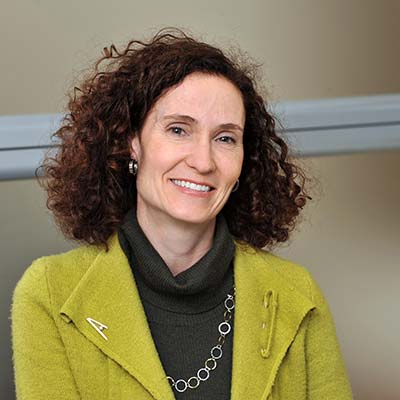 |
Catherine Beaudry, Rhodes Scholar, has Ph.D. and an M.Phil. in economics from the University of Oxford, as well as a bachelor degree in electrical engineering from Polytechnique Montreal. Topic: Study on university professors’ salaries in Canada – Are there factors that minimize gender effects? |
| Catherine Beaudry Professor, Department of Mathematical and Industrial Engineering, Polytechnique Montreal She is a professor at the Mathematics and Industrial Engineering Department and holds a Tier I Canada Research Chair on the Creation, development and commercialisation of innovation of Polytechnique Montréal. She is also a member of the Centre for interuniversity research on science and technology (CIRST), a fellow at the Centre for interuniversity research and analysis of organization (CIRANO) and a founding member of the Global Young Academy (GYA). |
|
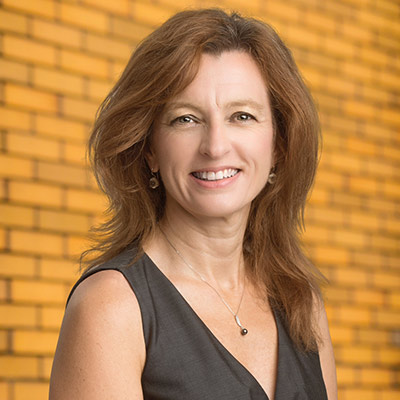 |
Higher management of research with focus on operations strategic planning and working now on equity and inclusion files, indigenous research and information systems and innovation files @Berubedo |
| Dominique Bérubé Vice-president, Research Programs, SSHRC/Vice-présidente Dominique Bérubé was appointed vice-president, Research Programs, at SSHRC in 2015 and is responsible for the agency’s Talent, Insight and Connection programs as well as the suite of programs managed by Tri-agency Institutional Programs Secretariat such as the Canada Research Chair. She previously worked at the Université de Montréal, as acting vice-rector, Research and associate vice-rector, Research and led the Érudit Consortium, a NFP digital publisher of Canadian Scholarly journal. She holds a doctorate in environmental sciences from the Université du Québec à Montréal and a master’s and a bachelor’s degree from the École polytechnique de Montréal. |
|
 |
Specialized in Indigenous women’s issues, I am committed to women’s rights, cultural diversity and justice, and have carried out my work mostly in Mexico as an academic, consultant, activist and civil servant advocating for Indigenous women´s rights. Topic: The professionalization of resistance among young indigenous women leaders. New challenges and opportunities for academic and applied research in Mexico and Latin America |
| Paloma Bonfil Sanchez Project coordinator, Interdisciplinary Group on Women, Poverty and Work Mexican historian and ethnohistorian with a PhD as a rural sociologist. She has been working with Indigenous women for more than 25 years. Consultant with various UN agencies, and the International Human Rights Commission on cases related to the violation of indigenous women’s rights. As a researcher, she has coordinated formative processes for Indigenous women (as promoters, and as researchers themselves). She has also been head of public policies and programs directed toward the empowerment of Indigenous women. She has 4 books, and more than 50 articles and essays published in Mexico and elsewhere. She has been the recipient of two awards in recognition for her work. |
|
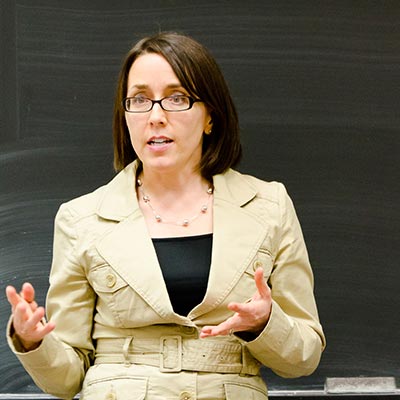 |
I am loyal, energetic and impatient! Promise and Pitfalls of Data and Metrics for Advancing University Diversity Initiatives @angelarcampbell |
| Angela Campbell Full Professor, Associate Provost (Policy, Procedures and Equity), McGill University Angela Campbell is Associate Provost (Equity & Academic Policies) and Professor of Law at McGill University. She researches and teaches in the areas of family law, health law, criminal law, successions law and feminist legal studies. She has previously served as Associate Dean of Graduate Studies in Law. Previously she has served as Director of the McGill Institute of Comparative Law and a convener of the McGill Research Group on Health and Law. |
|
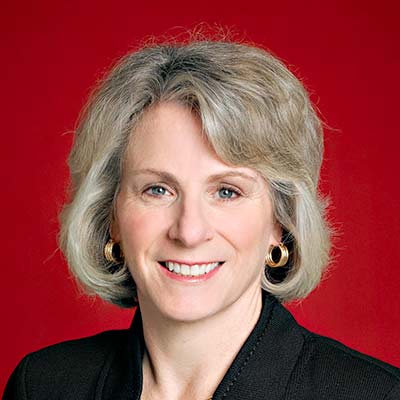 |
|
| Elizabeth Cannon President and Vice-Chancellor, University of Calgary and Past Chair of Universities Canada Elizabeth is president of the University of Calgary. She is a fellow of the Royal Society of Canada and the Canadian Academy of Engineering, and is a foreign Associate of the National Academy of Engineering. Dr. Cannon is Chair of Universities Canada and previously held the NSERC/Petro-Canada Chair for Women in Science and Engineering (Prairie Region). She has conducted research in of Global Positioning Systems (GPS) and commercialized technology to over 200 agencies worldwide. |
|
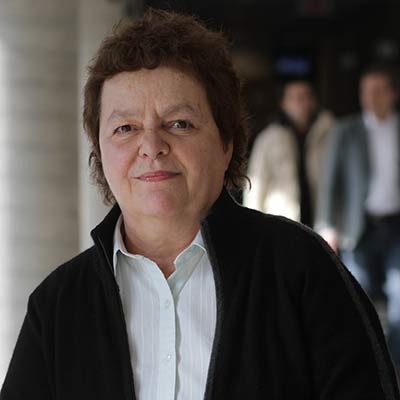 |
My trajectory is atypical on the professional level, since I began an academic career late in life, but the thread I have followed from social activism to community-based research is a coherent one based on my social commitment. Topic: Access to scientific and technological careers: What are the main barriers? What do we know about it? @luttehomophobie |
| Line Chamberland Professor, Sexology Department, and Research Chair on Homophobia, Université du Québec à Montréal (UQAM) Line Chamberland is a sociologist and teaches at the Department of Sexology (UQAM). She conducts research on discrimination and social exclusion of sexual and gender minorities, in particular in the workplace and in the education system. She created a research chair on sexual and gender diversity in partnership with community groups, unions and governmental institutions. She currently directs the project Understanding Inclusion and Exclusion of LGBTQ People (UNIE-LGBTQ – SHRRC 2016-2023) which reunites a large multidisciplinary team including researchers and partners from France, Switzerland and Belgium. |
|
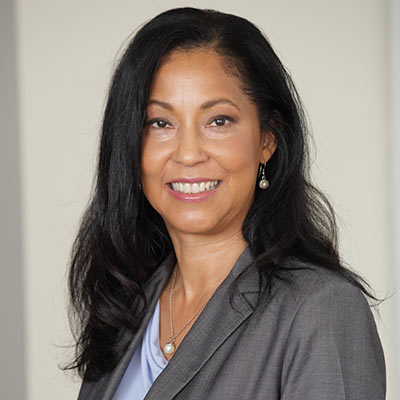 |
I’m a forward looking physician- scientist leader catalyzing data-driven approaches that consider sex and gender influences to accelerate health optimization for each and every one. @JanineClaytonMD |
| Janine Clayton Director, NIH Office of Research on Women’s Health Janine Austin Clayton, MD, Director of the Office of Research on Women’s Health at the National Institutes of Health (NIH), is the architect of the policy requiring NIH-funded scientists to consider sex as a biological variable in their studies. With NIH Director Francis Collins, MD, PhD, Clayton also co-chairs the NIH Working Group on Women in Biomedical Careers. A native Washingtonian, Clayton is an award-winning, board-certified ophthalmologist who has authored more than 80 publications. |
|
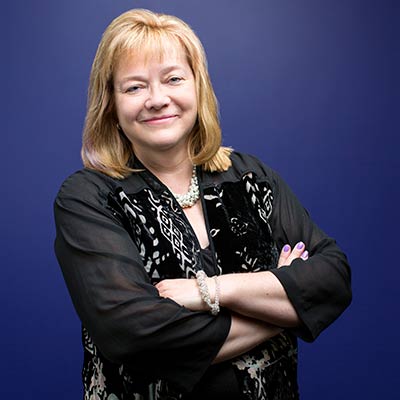 |
Professor, Department of Chemistry & Biology, studying regulation and role of membrane transport proteins involved in drug uptake. @ryscidean |
| Imogen Coe Dean, Faculty of Science, Ryerson University Dr. Imogen R. Coe is the founding Dean of the Faculty of Science at Ryerson University and affiliate scientist in the Li Ka Shing Knowledge Institute, Keenan Research Centre, St. Michael’s Hospital. Dr. Coe is a national leader on the issue of equity, diversity and inclusivity (EDI) in science, technology, engineering and math (STEM) and frequently speaks about the importance of leveraging the diversity opportunity in STEM in Canada. In fall 2016 she was recognized by WXN as one of Canada's Top 100 Women. |
|
 |
Rebecca Cohen-Palacios is a dedicated community organizer (Pixelles, GameLoop Montreal), public speaker & advocate for diversity/gender in video games and UI artist/developer at Ubisoft Montreal. @rebheartsyou |
| Rebecca Cohen-Palacios UI Developer, Ubisoft and Co-founder/Director, Pixelles Rebecca Cohen-Palacios is the co-founder and director of Pixelles which is a Montreal-based, non-profit organization dedicated to women. Pixelles empowers more women (as well as non-binary/genderqueer folks) in games through free programs, workshops, mentorship, mid-career support and community building. Professionally, Rebecca is a hybrid UI artist and developer currently working on an Assassin’s Creed Origins at Ubisoft Montreal. Her shipped titles include Shape Up (Kinect) and Assassin's Creed: Syndicate. Before switching into the games industry, Rebecca spent six years designing interfaces for web, apps and digital experiences. In her spare time, Rebecca mentors and teaches accessible workshops in collaboration with other organizations such Ladies Learning Code, TAG Lab, Kids Code Jeunesse, and Montreal’s public libraries. She also co-organizes the games unconference, GameLoop Montreal, which encourages open, inclusive discourse and critique of games development, culture, and methodologies. |
|
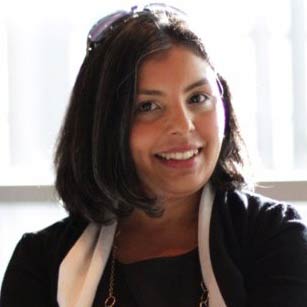 |
Karen's unique perspective and approach is what makes her so effective in this field of work. She has the ability to transform individuals and organizations inside out and to make relevant something that is often distant for many people, particularly men. As Director of Gender Equality & Inclusion, this is exactly what she is doing at AIMS. @KarenCraggs |
| Karen Craggs-Milne Global Group Director, Gender Equality, Inclusion & Business Development, African Institute for Mathematical Sciences (AIMS) (Rwanda) Karen Craggs-Milne is Global Group Director, Gender Equality, Inclusion & Business Development at AIMS. She has more than 15 years experience focusing on gender equality and inclusion in several sectors and regions. Prior to joining AIMS, Karen served as senior gender advisor at Plan International Canada. Armed with a rare combination of vision, inclusive leadership and technical skill, Karen’s passion for gender equality is inspiring and contagious. |
|
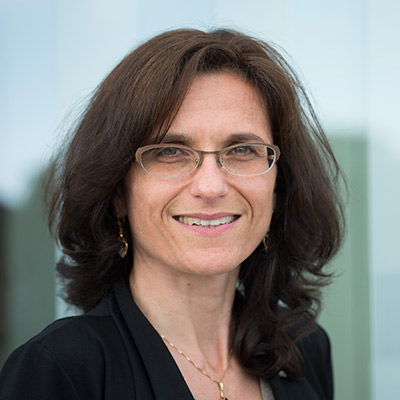 |
Topic: Measures required to effect structural change in recruitment, advancement and retention of women in STEM fields @ecroft |
| Elizabeth Croft Senior Associate Dean, Education and Professional Development, University of British Columbia Mechanical Engineer, Human-Robot Interaction Researcher, Professor, Engineering Education Innovator and Advocate for Women in Engineering. • Incoming Dean, Faculty of Engineering, Monash University, January 2018 |
|
 |
Woman of action, Sophie D'Amours possesses a strong leadership, based on openness, vision and commitment. |
| Sophie D’Amours Rector, Université Laval Mrs. Sophie D’Amours was elected Rector of Université Laval on April 26 2017. She is the first woman elected and the 26th person to hold this position. Mrs. D’Amours has been a professor in the Department of Mechanical Engineering at Université Laval since August 1995 and served as Vice Rector of Research and Creation from 2012 to 2015. Mrs. D’Amours has extensive experience in higher education, research and university management, both in Quebec and internationally. During the many strategic planning and management mandates entrusted to her, she has demonstrated a strong leadership, based on openness, vision and commitment. Mrs. D’Amours is Co-Chair of the Advisory Committee on the Quebec Research and Innovation Strategy and Chair of the Board of Directors of the Quebec Industrial Research Center. |
|
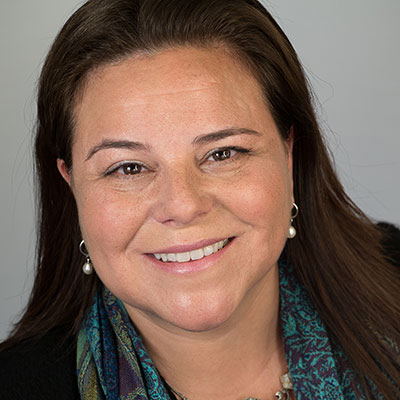 |
Equal Opportunity in the U.S. STEM Academic Workforce |
| Jessie DeAro ADVANCE Program Director, National Science Foundation Dr. Jessie DeAro is an expert in broadening participation in the STEM workforce and has seventeen years of experience leading federal grant programs at the National Science Foundation (NSF) and the U.S. Department of Education. Currently she is the lead program director for the ADVANCE program at NSF. She has served in leadership and policy roles in STEM education and workforce as a senior policy advisory at the White House Office of Science and Technology Policy and as acting Deputy Division Director at NSF. |
|
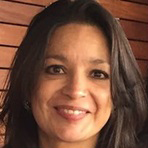 |
|
| Teresa de León Zamora Director of Technology Commercialisation, CONACYT Teresa de León Zamora is the Director of Technology Commercialization at CONACYT, the National Science and Technology Council in Mexico. She has a Master’s degree in Science and Technology Commercialization from the Advanced Materials CONACYT Research Center in Mexico (CIMAV), jointly with the IC2 from the University of Texas in Austin, and an MBA from the Universidad de las Américas Puebla. At CONACYT, she interacts with national and international stakeholders to design public policy and funding programs that support innovation and enhance a knowledge-based economy in Mexico. She previously worked at the National Institute for Astrophysics, Optics and Electronics (INAOE). |
|
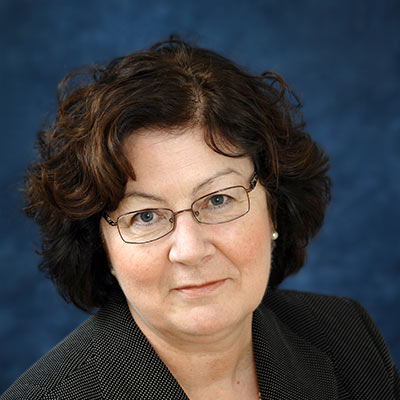 |
A pioneer in engineering, Prof. Deschênes puts her expertise at the service of sustainable energy development and the advancement of women in science and engineering |
| Claire Deschênes Professor of Mechanical Engineering, Chairholder, NSERC Claire Deschênes has been the first women appointed as professor in engineering at Laval University, where she dedicated her scientific career to the training of HQP and to the development of hydraulic turbines for production of hydroelectricity. From 1997 to 2006, she held the NSERC/Alcan Chair for women in science and engineering in Quebec and is still involved on this issue today. |
|
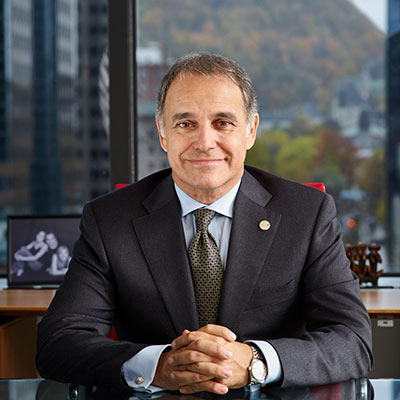 |
As President and CEO of VIA Rail, Yves Desjardins-Siciliano leads with passion, respect and transparency, and is known for embracing innovation and encouraging creative ideas. He prides himself on being a connected and accessible CEO. |
| Yves Desjardins-Siciliano President and CEO, Via Rail Yves Desjardins-Siciliano joined VIA Rail in 2010 and was appointed President and CEO in May 2014. Prior to VIA Rail, Mr. Desjardins-Siciliano held several senior positions in legal, regulatory and government relations, business and corporate development, marketing communications and finance in the information technology, telecommunications, marketing and entertainment industries. Past President of the Canadian Bar Association, Quebec Division, Mr. Desjardins-Siciliano was also Chief of Staff to the federal Minister of Labour and Minister of State for Transport. In 2016, Mr. Desjardins-Siciliano received the Business Achievement Award from the Quebec General Counsel Awards, presented by ZSA Legal Recruitment. He was also honoured by Women and Board in the CEO category for his outstanding contributions to advancing the role of women in corporate governance as the President and CEO of VIA Rail. Mr. Desjardins-Siciliano was appointed Honorary Lieutenant-Colonel of the Régiment de Maisonneuve in November 2016. |
|
 |
I really enjoy my old pickup truck, though I still don't understand how carburetors work. @TechAccessCDA |
| Ken Doyle Executive Director, Tech-Access Canada As Executive Director of the Tech-Access Canada network, Ken is responsible for providing service to the network’s 30 Technology Access Centres, including ensuring key deliverables for the network are met and effectively reported, and representing the network to industry associations, and the general public. Ken brings deep knowledge of college applied research and more than a decade of experience in federal public affairs and policy development for the Canadian college sector. |
|
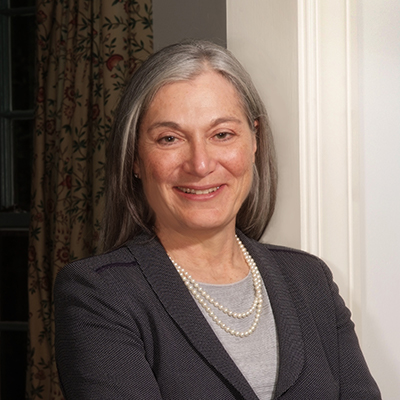 |
Gillian Einstein studies brain and behaviour in the context of other body systems and in the context of people’s lives in order to incorporate both sex and gender in our understanding of gendered health conditions. |
| Gillian Einstein Wilfed and Joyce Posluns Chair of Women's Brain Health and Aging, University of Toronto Gillian Einstein is The Wilfred and Joyce Posluns Chair in Women’s Brain Health and Aging, Associate Professor of Psychology at the University of Toronto and Guest Professor of Gender and Health at Linköping University. She has published in vision, Alzheimer disease, sex differences, hormones and mood. Her research is on the effects of estrogens and culture on women’s biologies specifically, cognitive and brain changes in women who have had their ovaries removed before natural menopause. The overarching question is: How do both sex and gender mediate women’s brain health? |
|
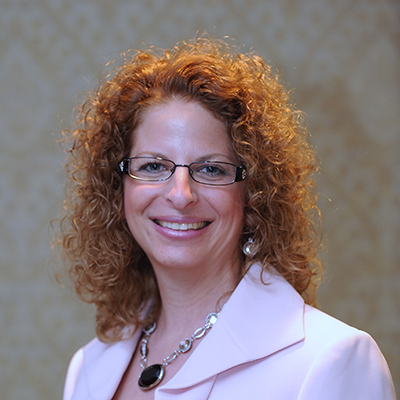 |
I’Il serve as the Vice President for Global Strategic Networks at Elsevier, an ambassadorial role focused on academic and federal/national agency outreach and engagement in the US and Canada. @hfalk14 |
| Holly J. Falk-Krzesinski Vice President for Strategic Alliance, Global Strategic Networks, Elsevier Holly J. Falk-Krzesinski, PhD, is the VP for Global Strategic Networks at Elsevier, focused on insight from data & analytics to guide strategic planning for the research enterprise. Dr. Falk-Krzesinski’s engagements emphasize: research analytics/metrics, economic development, open science, and scientific collaboration. Dr. Falk-Krzesinski is involved in promoting early career researchers and women leaders in STEM, through the NIH’s BEST program advisory panel and Elsevier’s Gender Working Group. |
|
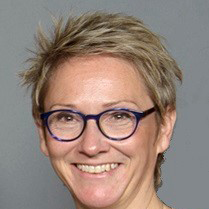 |
Previously, in the field of regional development and entrepreneurship, Catherine Ferembach has contributed as a senior official to promote reflection on the major societal issues affecting youth and the elderly. She continues her work, aiming to achieve equality between men and women in Quebec. Topic: Application of Gender-Based Analysis in Quebec @scf_quebec |
| Catherine Ferembach Associate Deputy Minister, Secrétariat à la condition féminine, Gouvernement du Québec As a graduate with a master’s degree in political science from the Université du Québec à Montréal, Ms. Ferembach became the Executive Director of the Société d’aide au développement de la collectivité du Bas-Richelieu in 1998. In 2001 she was appointed General Manager of Fonds jeunesse Québec, an organization that managed $240 million in funds intended for youth projects, before being appointed Assistant Secretary to the Youth Secretariat at the Executive Council Office from 2004 to 2009. She subsequently served as Assistant Deputy Minister of the Seniors’ Secretariat until the fall of 2014. Since then, Ms. Ferembach has been appointed Associate Deputy Minister in charge of the Women’s Affairs Secretariat. |
|
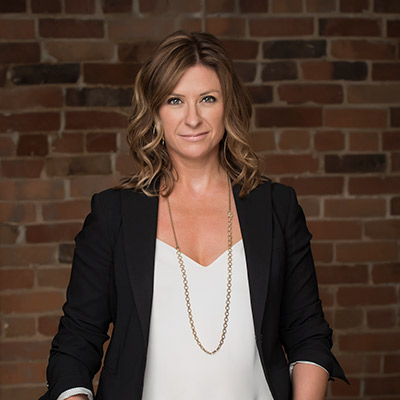 |
Vocal advocate for all youth in STEM, committed feminist, active promoter of reconciliation. Excited about social entrepreneurship, tech ed and governance. Mom of two amazing girls. |
| Jennifer Flanagan President and CEO, Actua Jennifer Flanagan is the co-founder, President and CEO of Actua, Canada’s largest STEM outreach organization. Jennifer is a national thought leader on STEM education, gender equity, diversity, youth innovation and Indigenous engagement. The Actua network has engaged over 5 million Canadian youth over the past twenty years. Jennifer currently sits on the Board of the Canadian Women’s Foundation and holds a Bachelor of Science and a Master of Management from McGill University. |
|
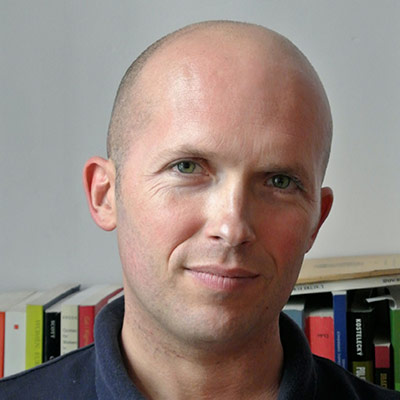 |
Topic: Transforming institutions from inside? European experiences on structural change towards gender equality in research performing organizations |
| Maxime Forest Associate Researcher and Lecturer, Sciences Po Paris and President, Commission Enjeux Internationaux et Européens du Haut Conseil à l'Egalité Maxime Forest, PhD, is Associate Researcher and Lecturer at Sciences Po Paris, where he co-coordinates the EGERA EU-funded project, standing for Effective Gender Equality in Research and the Academia. His research interest primarily concentrates on the comparative analysis of gender equality policies in a variety of fields, including research and higher education. He reflects on the transfer of feminist knowledge to/in complex organizations and the resistances to gender equality and gender training. He participated to the design and implementation of various EU wide initiative to achieve gender equality in science, including the GEAR tool recently released by the European Institute of Gender Equality. As co-coordinator of EGERA, he has been involved for four years in designing and implementing effective policies for gender equality in 7 European research performing organizations. He recently published “Integrating Gender and Diversity” in R. Dingwall and Mary MacDonnell, The SAGE Handbook of Research Management, Sage Publ. (2016) and The Politics of Feminist Knowledge Transfer: Gender Training and Gender Expertise, Palgrave Macmillan (2016), with Lucy Ferguson and Maria Bustelo. |
|
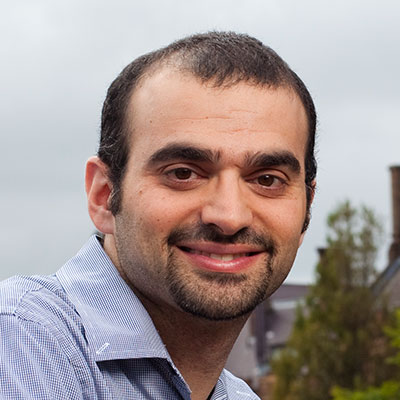 |
Bryan Gaensler is an internationally recognised astronomer, science communicator and author, who is an expert on dying stars, interstellar magnets and cosmic explosions. @SciBry |
| Bryan Gaensler Professor and Director, Dunlap Institute for Astronomy and Astrophysics, University of Toronto Bryan Gaensler is the Director of the Dunlap Institute for Astronomy and Astrophysics at the University of Toronto, is a Canada Research Chair in radio astronomy, and is the Canadian Science Director for the billion-dollar Square Kilometre Array project. He is deeply committed to creating science opportunities for everyone by instituting flexible, transparent and creative approaches to recruitment, professional development, and public outreach. |
|
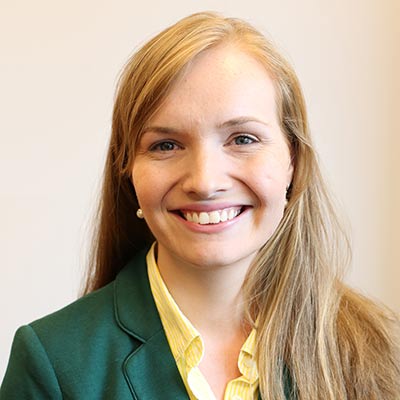 |
Barre enthusiast. Travel deal hunter. Cupcake queen. Cat lady. Topic: Diversifying the STEM community of tomorrow: educational, extracurricular, and community influences @SmithsonianScie |
| Katie Gainsback Professional Services Program Manager, Smithsonian Science Education Center Katie Gainsback is a Program Manager in the Professional Services division of the Smithsonian Science Education Center where she coordinates leadership development events for teachers, administrators, and community partners. These programs promote inquiry-based learning and support strategic planning for Science, Technology, Engineering, and Math (STEM) education. Katie holds an MA in Museum Education from The George Washington University and a BA in History from the College of William & Mary. |
|
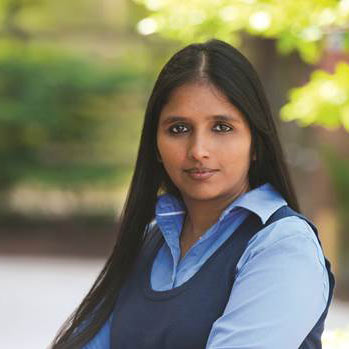 |
Building a more inclusive physics community in Canada. I am a quantum physicist, educator and advocate for women and underrepresented minorities in science. |
| Shohini Ghose Professor, Physics & Computer Science and Director, Centre for Women in Science Shohini Ghose is a Professor of Physics and Computer Science and Director of the Centre for Women in Science at Wilfrid Laurier University. Her research focus is in quantum computing. She is the Vice-President Elect of the Canadian Association of Physicists, and serves on the Working Group on Women in Physics of the International Union of Pure and Applied Physics. She is an affiliate of the Perimeter Institute, a Fellow of the Balsillie School of International Affairs, and a TED Fellow. In 2017 she was named to the Royal Society of Canada’s College of New Scholars, Artists and Scientists. |
|
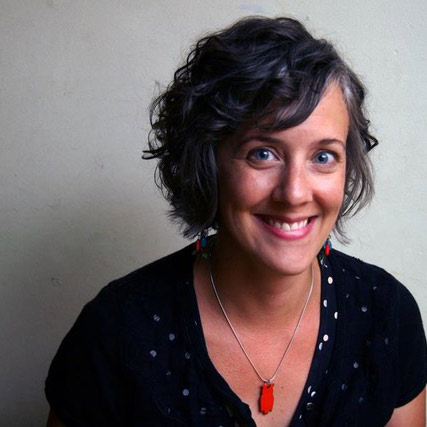 |
Science educator, educational researcher, and mother to the purest of scientists – a toddler. Topic: Girls doing gender and identity in out-of-school-time science @allisonjardim |
| Allison Gonsalves Assistant Professor, Assistant Professor, Department of Integrated Studies in Education, McGill University Dr. Gonsalves is an Assistant Professor at McGill University, specializing in science education in sociocultural contexts. Her research examines how students and pre-service teachers develop identities as ‘science people’ and the impacts these have for their pursuit of science careers, or their teaching of science as a subject. Dr. Gonsalves has researched the gendering of physics practices, and the implications for doctoral students’ identity trajectories into physics. She has also researched the gendering of science conversations in out-of-school contexts. |
|
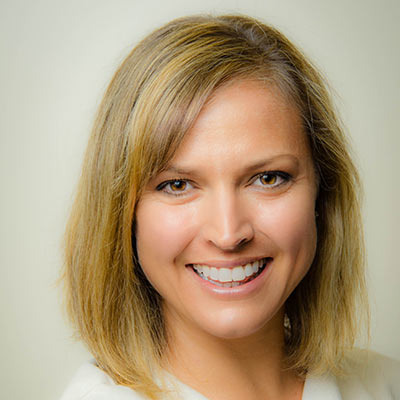 |
I am the Executive Director of the Tri-agency Institutional Programs Secretariat and a passionate advocate for equity, diversity, and inclusion in the research enterprise. |
| Danika Goosney Executive Director, Tri-Agency Institutional Programs Secretariat, SSHRC Dr. Danika Goosney is the Executive Director of the Tri-Agency Institutional Programs Secretariat, housed within the Social Sciences and Humanities Research Council of Canada. She leads the team responsible for the administration of the Canada Research Chairs Program, the Research Support Fund, the Canada Excellence Research Chairs Program, the Canada First Research Excellence Fund and the Canada 150 Research Chairs Program. She earned her Ph.D. at the University of British Columbia and conducted postdoctoral training at the Scripps Research Institute in California. Prior to joining SSHRC, she served in executive positions with the Canadian Institutes of Health Research. |
|
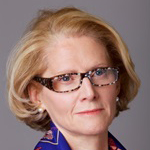 |
|
| Suzanne Gouin President of the Montreal Digital Spring’s Board, member of the Board of Directors of the Bell Fund, the Foundation of Greater Montreal and Hydro-Québec President of the Montreal Digital Spring’s Board, a member of the Board of Directors of the Bell Fund, the Foundation of Greater Montreal and Hydro-Québec, and member of several advisory committees, Ms. Gouin is an experienced media company manager. CEO of TV5 Québec Canada for more than 13 years, she has held various management positions in both the private and public sectors. A graduate of Concordia University, she holds an MBA from the Richard Ivey School of Business (University of Western Ontario) and holds IAS accreditation from the Institute of Corporate Directors. Ms. Gouin is a recipient of the National Order of Merit of the French Republic. |
|
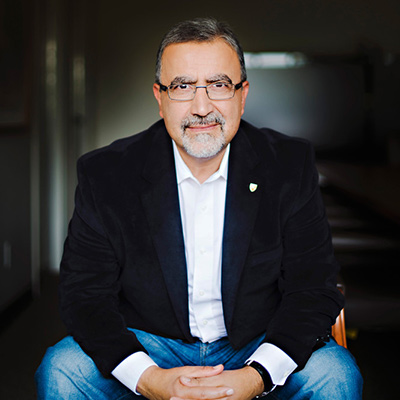 |
University of Waterloo president and vice-chancellor who is proud to be appointed to the United Nation’s HeforShe Impact 10X10X10 campaign. @UWaterlooPres |
| Feridun Hamdullahpur President and Vice-Chancellor, University of Waterloo, and University IMPACT Champion, United Nation’s HeforShe IMPACT 10×10×10 initiative Dr. Hamdullahpur is president and vice-chancellor of the University of Waterloo. His central motivation is ensuring that the impact of university education, research and scholarship on our broader society is maximized through constant reform and innovation in the higher education sector. He is a leading advocate for the value of basic research and its relevance to educational excellence and economic prosperity. He is proud to have been one of 10 global university presidents appointed to the United Nation’s HeforShe Impact 10x10x10 campaign to engage boys and men in the cause of gender equity. |
|
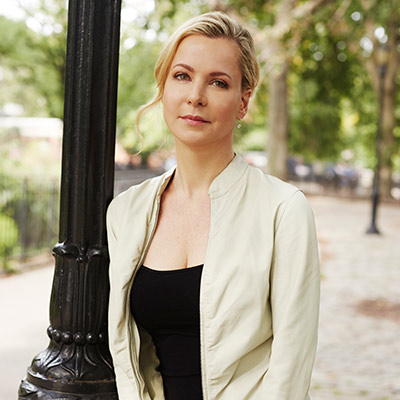 |
Olena Hankivsky (Professor) B.A. (Toronto), M.A. PhD (Western Ontario) specializes in public policy and political theory and has a particular interest in gender, intersectionality, and social and health policy. |
| Olena Hankivsky Director, Institute for Intersectionality Research and Policy at Simon Fraser University Olena Hankivsky is the Founder and Director of the Institute for Intersectionality Research and Policy at Simon Fraser University in Vancouver, Canada. She has held visiting professor positions at both Columbia University and London School of Hygiene and Tropical Medicine. Most recently (2015), she established the first public health school in Ukraine – The Lviv School of Public Health, and has been appointed its first Director. Her research interests are focused on social and health policy. She is an internationally recognized expert in gender mainstreaming and intersectionality-based analysis. |
|
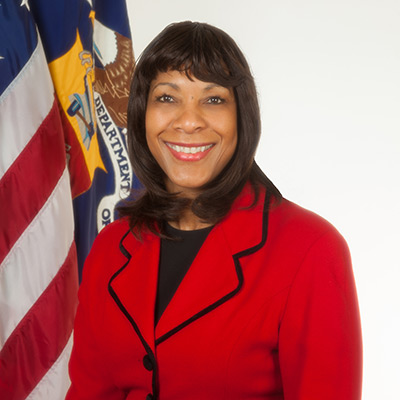 |
I always look for the good in people, and like to believe that the work I do make a difference in people’s life. My motto is: service above self. |
| Joan Harrigan-Farrelly Deputy Director, Women’s Bureau, US Department of Labor Joan Harrigan-Farrelly joined the Women’s Bureau, U.S. Department of Labor in December 2012 and serves as the Deputy Director. Prior to joining the Women’s Bureau, Ms. Harrigan-Farrelly worked at the U.S. Environmental Protection Agency (EPA) for 14 years. Ms. Harrigan-Farrelly also worked at United States Agency for International Development as Women in Development Fellow in the Policy Bureau. Ms. Harrigan-Farrelly holds a Bachelor’s degree from Rutgers University and a Master’s degree from New York University. |
|
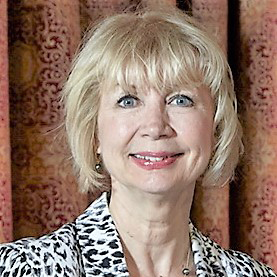 |
I am a historian specializing in the study of women in Canadian science and engineering, with a strong focus on the development of policies and initiatives aimed at increasing the number of women in S&E. Topic: Learning from the past to better shape current and future initiatives: Looking at the historical context. |
| Ruby Heap Professor, Associate Vice-President, Research, University of Ottawa Master’s and PhD studies in History at McGill University and the Université de Montréal respectively. Full professor in the Department of History, University of Ottawa. Main research areas are the history of women’s education and women’s access to the professions, most recently in science and engineering. Held several administrative positions at the University of Ottawa, including, most recently, associate vice president research (2009-2016). In 2010, she received the President’s Prize of the Professional Engineers of Ontario (PEO), which recognizes non-engineers who have demonstrated extraordinary support or promoted public awareness of the engineering profession. |
|
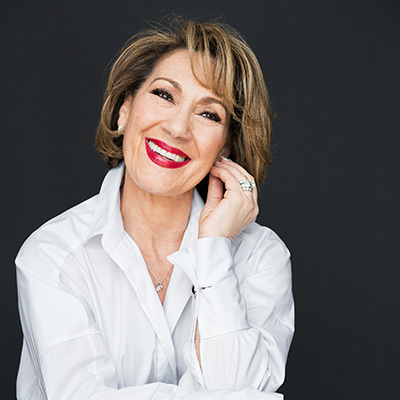 |
I have often been forced to put one knee to the ground, but i always kept the other one to get back up. @daniele_henkel |
| Danièle Henkel President, Danièle Henkel inc. Daniele Henkel is a businesswoman who created a strong and unique brand in the province of Quebec. Her eponymous company aims to reconcile health and business with the installation of care facilities within the workplace, thus enforcing the concept of wellness as a new social norm in the business world. Daniele Henkel is at the forefront of the fight for a stronger corporate Quebec and a fierce advocate of the promotion of women entrepreneurship in Quebec; she does not hesitate to finance, support and mentor businesses in which she believes in, as demonstrated during her five seasons on Quebec’s ‘’Dragon’s Den’’. While life has not always been easy for the intuitive entrepreneur, her obsession to create a softer, more caring world remains. |
|
 |
Topic: Higher, strategic management of research with focus on national and international innovation systems, with emphasis on the role played by universities, industry and government in promoting economic prosperity in the 21st century economy. |
| Ted Hewitt President, SSHRC Ted Hewitt was appointed president of SSHRC in March 2015. Previously, he was SSHRC's EVP and COO. A leading authority on Brazil, Ted's recent research has focused on national and international innovation systems, with emphasis on the roles of universities, industry and government in promoting economic prosperity in the 21st century. He is Canadian co-chair of the Canada-Brazil Joint Committee for Cooperation on Science, Technology and Innovation, and a board member of the Brazil-Canada Chamber of Commerce. |
|
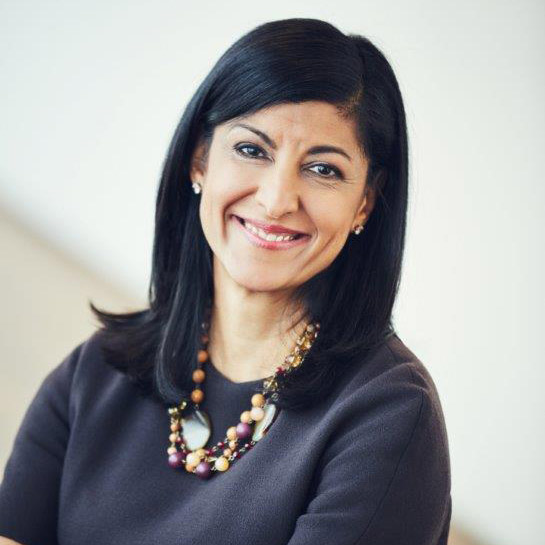 |
Diversity & Inclusion Trailblazer, Business-oriented Human Resources Leader, Strategic Advisor, Community Leader, Change Maker, Role model & mentor - and the proud mom of two young adults |
| Zabeen Hirji Special Advisor and past Chief Human Resources Officer, Royal Bank of Canada Zabeen is Special Advisor at RBC and from 2007– 2017 was Chief Human Resources Officer covering 80,000 employees in 35 countries. She also had responsibility for Brand, Communications and Corporate Citizenship and was a member of RBC’s Group Executive. She is a recognized change maker, and received the Governor General's meritorious Service Medal for advancing diversity & inclusion, is a Catalyst Canada honouree for Championing Women and Minorities and a WXN Top 100 Most Powerful Women Hall of Fame inductee. As both champion and challenger on diversity & inclusion she is a senior-level advisor to governments and not-for-profits, a speaker and media commentator. |
|
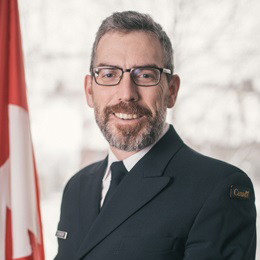 |
Commissioner Hutchinson has a reputation for fostering innovation within the public service.Topic: GBA+ at the Canadian Coast Guard @hutchtribe |
| Jeffery Hutchinson Commissioner, Canadian Coast Guard Commissioner Hutchinson was appointed to lead the Canadian Coast Guard in March 2017, after having served in various positions at the organization. Building on 15 years of executive experience, Commissioner Hutchinson has a proven track record of leadership in the public service that ranges from law to frontline services. Commissioner Hutchinson is from London, Ontario and holds a law degree from the University of Western Ontario. |
|
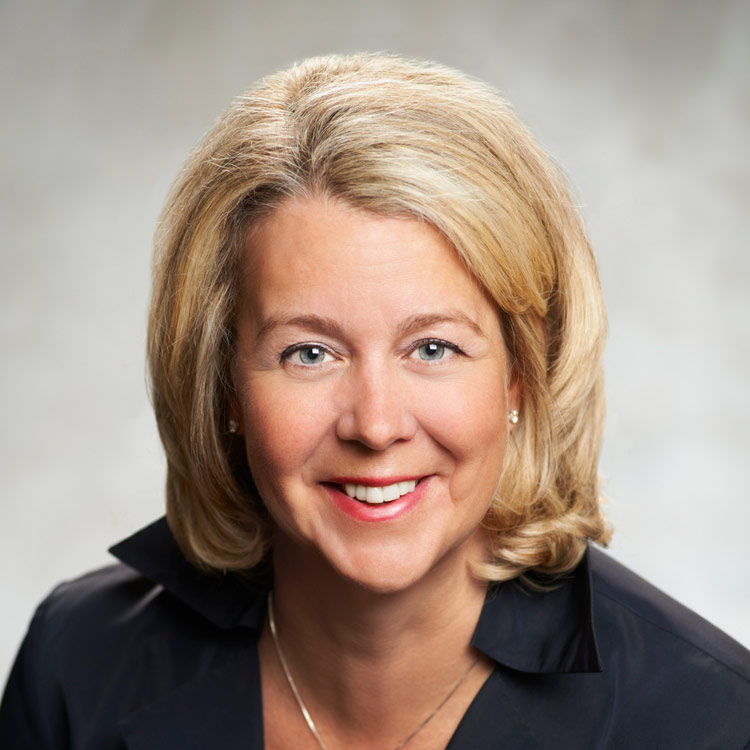 |
Topic: Diversity as a catalyst for innovation: Considering how LGBTQ2 perspectives strengthen research and innovation |
| Martine Irman Vice-Chair and Head of Global Enterprise Banking, TD Securities and Senior Vice-President, TD Bank Group Martine is a proven executive who has worked in capital markets for 25+ years. She is passionate about Women in Leadership and strongly believes in the power of giving back to the communities where we live and work. Martine lrman is responsible for enterprise-wide banking initiatives at TD Securities and is the lead executive for ensuring senior client relationship management is seamless across the firm's key global businesses; Equity, Interest Rate and Currency products. She currently is a Vice Chair of the Board of Directors for the YMCA of Greater Toronto and a Co-Founder and inaugural Co-Chair (2008-2010) of Women Gaining Ground for United Way Toronto. Also active in the investment community, Martine is a member of Women in Capital Markets Advisory Council. |
|
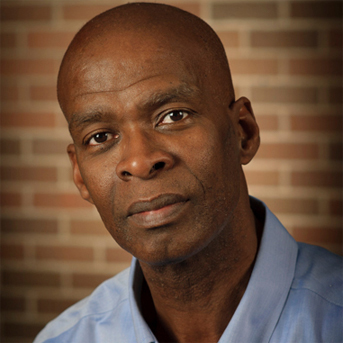 |
I have a keen interest in promoting equity and social justice – something that is necessary if we are to have a society in which individuals (particularly marginalied individuals) – are able to fully participate and attain their ambitions. |
| Carl James Professor and Director of the York Centre for Education and Community, York University Carl E. James is the Jean Augustine Chair in Education, Community and Diaspora. He holds a PhD in Sociology, and teaches in the Faculty of Education and in the Graduate Program in Sociology at York University. His research interests include examining how issues of equity, access, inclusivity and social justice are taken up in educational institutions and workplaces. His most recent publication – co-authored with 6 colleagues is: The Equity Myth: Racialization and Indigeneity at Canadian Universities, University of British Columbia Press (Spring, 2017). |
|
 |
Dr. Karla Jessen Williamson is Assistant Professor of Educational Foundations, University of Saskatchewan. She is Inuk from Greenland, and enjoys life in Canada. Topic: Paradigm shift to reveal Inuit gender relations in the context of reconciliation |
| Karla Jessen Williamson Assistant Professor, Educational Foundations, University of Saskatchewan Dr. Karla Jessen Williamson is a faculty member in Educational Foundations at the University of Saskatchewan. She is a ‘kalaaleq’ – an Inuk from Greenland. Having undergone an education strongly influenced by assimilation, she learned to speak three languages and has become a notable presenter promoting deep cultural understandings. She is well versed in how Inuit arrive at gender equality and how this is arrived at in relationship to ancestors, animals, and the environment. Her teaching specializations include Indigenous epistemologies, oral traditions and resilience as they relate to education. She earned her PhD from the University of Aberdeen. She is the former Executive Director of the Arctic Institute of North America, and has been a Senior Researcher with Inuit Tapiriit Kanatami, a national organization representing the rights of the Inuit. She has three grandchildren, each speaking their grandmother’s language. |
|
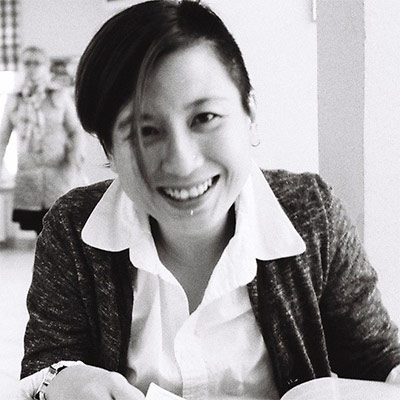 |
Jac sm Kee is a feminist activist working on the intersection of internet, politics and human rights, at local and global levels. @jhybe |
| Jac sm Kee Director of the Women's Rights Programme, Association for Progressive Communications Jac sm Kee is a feminist activist & writer. She heads the Women's Rights Programme at the Association for Progressive Communications (APC). Her areas of focus include internet governance and human rights, sexuality, women’s rights, and internet technologies and feminist movement building. Jac co-founded the Take Back the Tech! collaborative global campaign on technology-related violence against women, and collectively developed the Feminist Principles of the Internet. She is currently serving as a member of the Multistakeholder Advisory Group for the Internet Governance Forum, board member for CREA and co-director of Centre for Independent Journalism, Malaysia. |
|
 |
Simon Kennedy is a longstanding Canadian public servant with extensive experience in public policy, having served in management roles in six different federal departments. Topic: Incorporating cutting edge sex- and gender- based analysis research expertise into Health Canada priorities |
| Simon Kennedy Deputy Minister, Health Canada Simon Kennedy became Deputy Minister of Health on January 21, 2015. Previously, he served as the Deputy Minister of International Trade and Canada's G-20 Sherpa, and Senior Associate Deputy Minister at Industry Canada. He also held senior roles at Transport Canada, the Canadian Coast Guard, Agriculture and Agri-food Canada, and the Privy Council Office. Mr. Kennedy holds a Bachelor of Public Relations and a Master of Science in Communications Management. |
|
 |
I am a Professor of Biology at the University of Ottawa, where I study global change impacts on biodiversity and am strongly engaged in science policy work on many fronts. Topic: Key commitments needed to move forward with equity in research environments |
| Jeremy Kerr Professor, University Research Chair in Macroecology and Conservation, University of Ottawa, and President of the Canadian Society for Ecology and Evolution Jeremy Kerr holds the University Research Chair in Macroecology and Conservation Biology at the University of Ottawa. His work has been featured in the media worldwide, including the New York Times, Washington Post, and Le Monde. He was elected to the Global Young Academy and has received numerous research awards. He is President of the Canadian Society for Ecology and Evolution and contributes to new policies for gender equality, basic science, and environmental advocacy. |
|
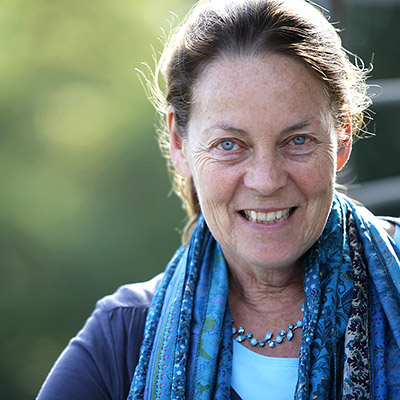 |
Gender expert with biomedical background, engaged in developing innovative methodologies for biomedical and health research at EU level and nationally. Topic: Implementation of sex and gender analysis by science funding bodies: examples of EC Horizon 2020 and Dutch ZonMW @inekeklinge |
| Ineke Klinge Professor, Chair, Horizon 2020 Advisory Group for Gender Alliance for Gender and Health Ineke Klinge chairs the EC Horizon 2020 Advisory Group for Gender. She has a background in biomedical sciences and gender research. She coordinated many EU projects e.g. the Gendered Innovations project together with Londa Schiebinger. This project developed methods of sex and gender analysis that now are implemented by several science funding bodies. She serves on the advisory board of the Institute for Gender and Health (Canada, until 2016)) and the European Institute for Women’s’ Health (EIWH). She is a member of the Dutch Alliance for Gender & Health that developed a research programme focusing on integration of sex and gender in health research and -care. This research program received a 4-year funding from the Dutch Ministry of Health in 2016. |
|
 |
I am a gay Asian-American scientist working in science and technology policy to connect science, policy, and the public in inclusive environments. Topic: LGBTQ Communities in Science, Research, and Innovation |
| Kei Koizumi Visiting Scholar, American Association for the Advancement of Science Kei Koizumi is a Visiting Scholar in Science Policy at the American Association for the Advancement of Science (AAAS). He joined AAAS in February 2017 after 8 years as Assistant Director for Federal Research and Development at the White House Office of Science and Technology Policy (OSTP). Before joining OSTP in February 2009, he served as the Director of the R&D Budget and Policy Program at the American Association for the Advancement of Science (AAAS). |
|
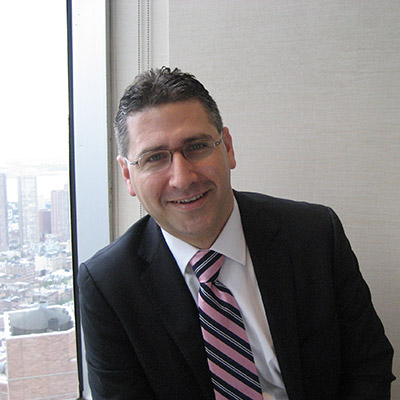 |
I am Deloitte’s Global Boardroom Leader and a passionate advocate for director diversity. Topic: The Power of Boardroom Diversity: A Global Perspective @konigsburg |
| Dan Konigsburg Managing Director of Corporate Governance and Public Policy, Deloitte Touche Tohmatsu Limited Dan Konigsburg is Senior Managing Director of corporate governance and public policy for Deloitte Touche Tohmatsu Limited. The Global Governance Center serves clients and promotes dialogue in the critical area of corporate governance through a network of local governance centers across 36 countries. Prior to joining Deloitte, Dan served as Director of Corporate Governance at Standard & Poor’s in London and then New York. Dan also serves as Chairman of the OECD’s Business Advisory (BIAC) Task Force on Corporate Governance in Paris, is a member of the International Corporate Governance Network’s (ICGN) Business Ethics Committee. |
|
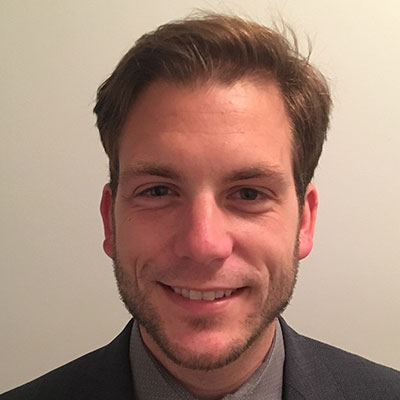 |
Public policy enthusiast. Shameless generalist. |
| Jean Lamirande Senior Advisor, Budget Policy and Analysis, Finance Canada Jean Lamirande is a Senior Advisor within the Economic and Fiscal Policy Branch of Finance Canada, with primary responsibilities for the coordination of federal budget decision-making and production. Prior to joining Finance in 2016, he spent over 5 years as an analyst within the Government Operations Sector at the Treasury Board Secretariat of Canada. He is a graduate of the University of Ottawa, with a Master’s Degree in Political Science. |
|
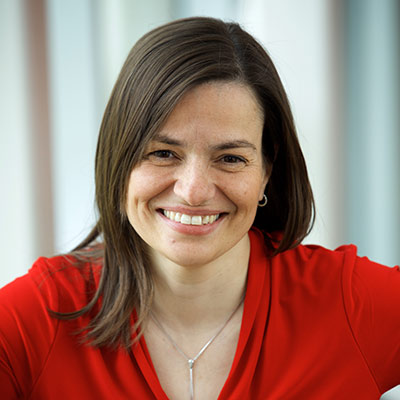 |
Mother of two boys, athlete and artist at heart, passionate about the success of young people, women’s representation in science and engineering, and bio-engineering. |
| Ève Langelier Associate Professor, Chairholder, Quebec Chair for Women in Science and Engineering, Université de Sherbrooke Eve Langelier, (Eng, PhD., MSc.) has a background in mechanical and biomedical engineering. She is currently an Associate Professor at Université de Sherbrooke. She holds the Chair for Women in Science and Engineering from NSERC in the region of Québec, whose main goal is to increase the participation of women in these fields. Her chair program targets women at different stages in their life, from grade five to the workplace. Eve Langelier is also active in bioengineering research. She studies the mechanobiology and biomechanics of tendons in order to improve the prevention and healing of injuries. |
|
 |
Professor Hilary Lappin-Scott is the Senior Pro-Vice-Chancellor and a member of the Senior Management team at Swansea University, leading for Research and Innovation and Strategic Development. Topic: Using Athena SWAN to increase Leadership Diversity in STEM @lappinscott |
| Hilary Lappin-Scott Senior Pro-Vice-Chancellor, Research, Innovation and Strategic Development, Swansea Prof Lappin-Scott was elected Vice President of the prestigious Federation of European Microbiological Society (FEMS) in 2016, having held the Presidencies of both the Society for General Microbiology (now Microbiology Society) 2009-2012, and the International Society for Microbial Ecology (2006-2010). She is a Fellow of the American Academy of Microbiology, the Royal Society of Biology, the Linnean Society and also of the European Academy of Microbiology. Professor Lappin-Scott is also Swansea University’s lead for the Equality and Diversity agenda for Athena SWAN and has ensured that every STEM subject has at least a Bronze award. She is an elected Board member of the Equality Challenge Unit (ECU). Her recent work on promoting girls in science and retaining women in STEM careers include her TedTalk . She advises Australian universities and Research institutes on best practice on supporting women in STEM and is co-author of the Welsh Government Report “Talented Women for a Successful Wales”. Professor Lappin-Scott was awarded the prestigious WISE Hero Award 2016 and was recently awarded the Womenspire ‘STEM Pioneer’ Award 2017 for her work in supporting women in STEM. |
|
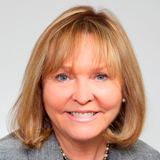 |
Leader in science and devoted advocate of the promotion of science among girls and women. @FRQ_NT |
| Maryse Lassonde Scientific Director, FRQNT and President, Royal Society of Canada Dr. Maryse Lassonde completed a PhD in neuropsychology at Stanford University. She became professor at the Université du Québec à Trois-Rivières (1977–1988) and then at the Université de Montréal (1988–2013), where she was nominated emeritus professor. She is a Fellow of the Canadian Psychological Association (1994), the Royal Society of Canada (1997) and the Canadian Academy of Health Sciences (2010), and she held a Canada Research Chair (2001–2013). Dr. Lassonde was appointed an Officer of the Order of Canada in 2012 and a Chevalière of the Ordre national du Québec in 1999. She was President of the Association francophone pour le savoir (1993–1994) and presided the Conseil de l’Ordre national du Québec (2008–2010). Dr. Lassonde became the Scientific Director of the Fonds de recherche du Québec – Nature et technologies in 2012 and is President of the Royal Society of Canada, the Academies of Arts, Humanities and Sciences. |
|
 |
Jean Lebel is one of Canada's strongest voices on the interface between development and foreign policy and innovation. He is a champion of programming that advances gender equality and promotes the empowerment of women and girls. @_JeanLebel |
| Jean Lebel President IDRC As President, Jean leads the Centre's contributions to Canada's development, foreign policy, and global innovation efforts. He is responsible for significant funding partnerships with Canadian and foreign governments, philanthropic organizations, and the private sector. Jean previously served as Vice-President, Program and Partnership Branch, overseeing all IDRC programming, as well as Director, Agriculture and Environment. He holds a PhD in environmental sciences from l'Université du Quebec a Montreal and an MScA in occupational health sciences from McGill University. |
|
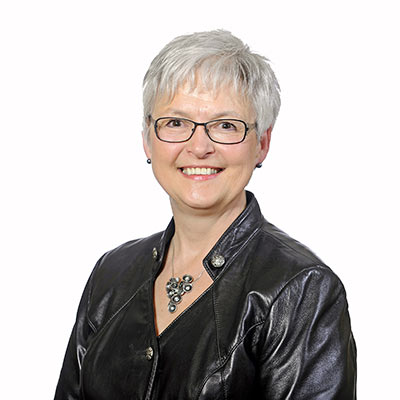 |
My goal is to contribute to the progress of gender equity through raising questions, analysis and the deconstruction of social and organizational processes that generate and maintain social gender inequities within organizations and families. |
| Hélène Lee-Gosselin Full Professor and Director of l’Institut Femmes, Sociétés, Égalité et Équité, Université Laval Hired in 1981, she is full professor of Management Department (Faculté des sciences de l’administration, Université Laval). She holds a PhD in Organizational Psychology (UofM). Her research and interventions focus on the diverse realities of women and work, on equity and ethics in organizations. Since December 2016, she head the new Institut Femmes, Sociétés, Égalité et Équité (IFSÉÉ) and conduct collaborative research on women in senior functions and boards, entrepreneurs (natives and immigrants) and women in traditionally male dominated professions. |
|
 |
Passionate about genomics – its power and potential to transform lives and the Canadian economy. |
| Marc LePage President and CEO, Genome Canada Marc LePage is President and CEO of Genome Canada, where he is focused on harnessing the transformative power of genomics for the benefit of all Canadians. Before assuming this role in January 2016, he served as President and CEO of Génome Québec since December 2011, where he led a major increase in research activity and enhanced focus on the development of genomic applications within priority sectors within the province. He is an expert in international partnerships and previously served as Special Advisor, Climate Change and Energy for the Embassy of Canada in Washington, D.C. and worked as Consul General at the Canadian Consulate in San Francisco/Silicon Valley. |
|
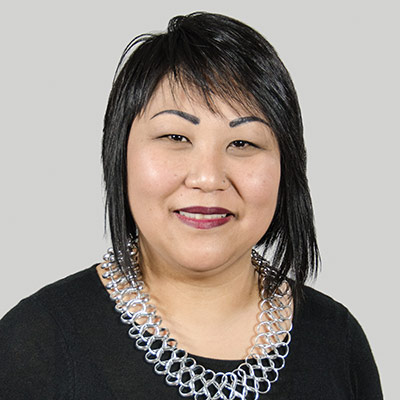 |
Lisa Cole – Mother of Two, Passionate Physics educator and committed to Diversity in STEM. Topic: Diversifying the STEM community of tomorrow: educational, extracurricular, and community influences @llimcole |
| Lisa Cole (Lim-Cole) Education Officer, Ontario Ministry of Education Lisa Cole is a physics/science/math educator with 17 years of experience. She was the Science & Technology Program Facilitator (K-12) for the Durham District School Board and the past president of the Ontario Association of Physics Teachers. Lisa completed her degree in physics at McGill University and her education degree at Queen’s University. She has been an active member of the Teacher Network for the Perimeter Institute for Theoretical Physics and a member of the National Engineering Change Lab. Lisa continues to be an advocate for diversity in STEM. |
|
 |
Researcher in neurophysiology, passionate about the role of sex and gender in pain and its treatment. |
| Serge Marchand Scientific Director, Fonds de recherche du Québec – Santé Serge Marchand, Ph.D., is the Scientific Director of the FRQS. Prior to his appointment (August 2017), he was Professor at the Faculty of Medicine at the Université de Sherbrooke, and director of pain research labs at the Sherbrooke University Hospital Research Center. He completed his PhD in Neuroscience at Université de Montréal in 1992 and his post-doctoral training at the University of California in 1994. He held the Joint Chair in Physiopathology of Pain UQAT-Université de Sherbrooke (2002-2010), and was the Scientific Director of the CHUS Research Center (2008-2013). He has authored several articles, book chapters and books on the neurophysiology of pain, and served on numerous national and international evaluation committees. His research focuses on the neurophysiological mechanisms responsible for the development and persistence of chronic pain. |
|
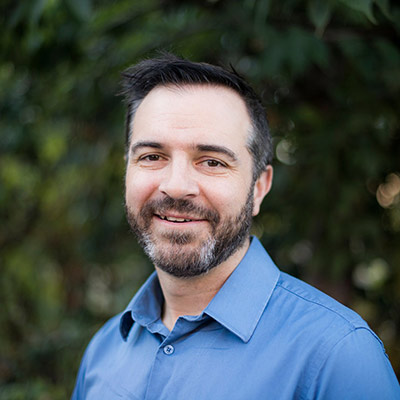 |
I am passionate about the power of the nursing profession to drive health and social policy change. I enjoy being on the frontier edges of transformation. I am happiest when pioneering innovation in uncharted territories. Topic: Addressing Gender Stereotypes of Non-Traditional Roles of Men and Women in Industry @ZakMatieschyn |
| Zachary Matieschyn Past President, Association of Registered Nurses of BC Zak Matieschyn is currently an Addition Nurse Practitioner Fellow with the BC Centre on Substance Use and a Family Nurse Practitioner with a primary healthcare practice in the West Kootenays since 2008. This is broad scope family practice with a focus on marginalized populations (e.g. addictions, mental health, infectious disease and transgender health). He recently completed a term as President of the Association of Registered Nurses of BC – a professional association representing registered nurses and nurse practitioners which engages in advocacy and policy work for the nursing profession, as well as healthcare in general. |
|
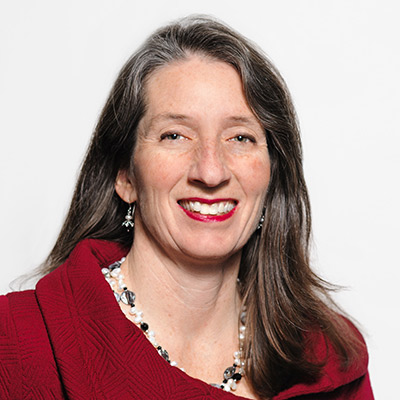 |
Catherine Mavriplis holds the NSERC Chair for Women in Science and Engineering for Ontario at the University of Ottawa, where she is professor of Mechanical Engineering. @CWSE_ON |
| Catherine Mavriplis Associate Professor, University of Ottawa and NSERC Chair for Women in Science and Engineering for Ontario Catherine Mavriplis holds a PhD in Aeronautics from the Massachusetts Institute of Technology. She has worked as a professor of mechanical and aerospace engineering in the US and in Canada since 1991, with a two-year rotation as a program manager at the US National Science Foundation (NSF). She has developed career advancement programs and research for women in science engineering under the US NSF ADVANCE program and the Canadian Chair for Women in Science and Engineering program. |
|
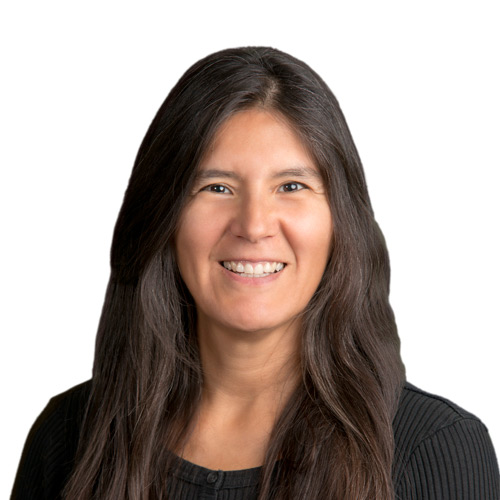 |
Associate Professor, Osgoode Hall Law School and Faculty of Environmental Studies. I currently hold a Canada Research Chair in Indigenous Environmental Justice. |
| Deborah McGregor Associate Professor, Osgoode Hall Law School and Faculty of Environmental Studies, and Canada Research Chair in Indigenous Environmental Justice, York University Professor McGregor’s research has focused on Indigenous knowledge systems and their various applications in diverse contexts including water and environmental governance, environmental justice, forest policy and management, and sustainable development. Her research has been published in a variety of national and international journals and she has delivered numerous public and academic presentations relating to Indigenous knowledge systems, governance and sustainability. She served as Director of the Centre for Aboriginal Initiatives and the Aboriginal Studies program. She has also served as Senior Policy Advisor, Aboriginal Relations at Environment Canada-Ontario Region. In addition to such posts, Professor McGregor remains actively involved in a variety of Indigenous communities, serving as an advisor and continuing to engage in community-based research and initiatives. Professor McGregor coordinated an Indigenous Environmental Justice (IEJ) Symposium in May 2016 featuring the voices of women and youth. She also recently launched an IEJ website. Her research interests include: Indigenous environmental justice, Indigenous governance and law, sustainability, water governance and security, and Indigenous knowledge systems. |
|
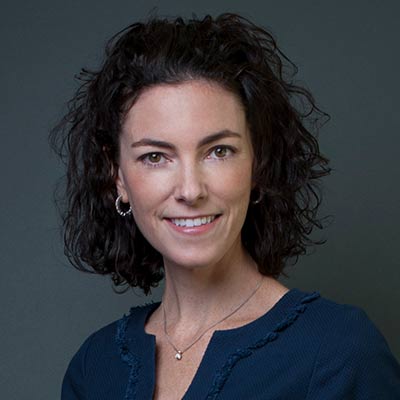 |
Alyson J. McGregor, MD MA FACEP is an Associate Professor of Emergency Medicine at Alpert Medical School of Brown University, the Co-Founder and Director for the Division and Fellowship of Sex and Gender in Emergency Medicine (SGEM) at Brown University’s Department of Emergency Medicine. Topic: How to advance knowledge in sex and gender based medicine through curricular innovation. @mcgregormd |
| Alyson J. McGregor Associate Professor of Emergency Medicine, and Director, Division of Sex and Gender in Emergency Medicine, Warren Alpert Medical School, Brown University Alyson J. McGregor, MD MA FACEP is an Associate Professor of Emergency Medicine at Alpert Medical School of Brown University, the Co-Founder and Director for the Division and Fellowship of Sex and Gender in Emergency Medicine (SGEM) at Brown University’s Department of Emergency Medicine. Dr. McGregor’s research focus is on the effects that sex and gender have on emergent conditions and has been an international activist with such talks as "Why Medicine Often Has Dangerous Side Effects For Women” on TED.com. Dr. McGregor is the lead editor for the medical textbook Sex and Gender in Acute Care Medicine, Cambridge University Press. |
|
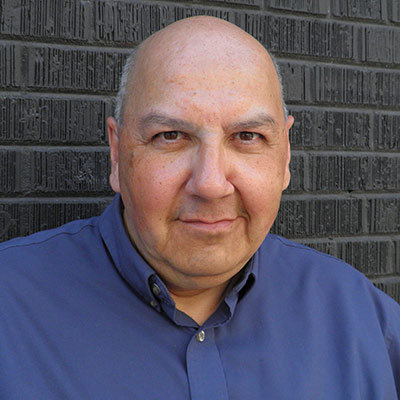 |
Two-Spirit human rights activist. |
| Albert McLeod Co-Director of Two-Spirited People of Manitoba Inc. Albert McLeod is a Status Indian with ancestry from Nisichawaysihk Cree Nation and the Metis community of Norway House in northern Manitoba. Albert has over thirty years of experience as a human rights activist and is one of the directors of the Two-Spirited People of Manitoba in Winnipeg. He is a facilitator, specializing in Indigenous cultural resurgence, textile art, and community development. |
|
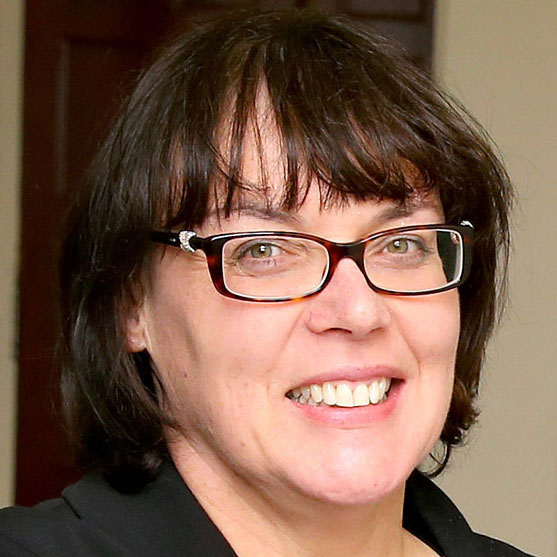 |
Eucharia Meehan MRIA is the recently appointed CEO of the Dublin Institute for Advanced Studies (DIAS). Prior to this she was the inaugural Director of the Irish Research Council (2012-2017). Topic: Applying intersectionality into research policy development |
| Eucharia Meehan Registrar and CEO, Dublin Institute for Advanced Studies Under the stewardship of Eucharia Meehan, the Irish Research Council was the first research funding agency in Ireland to launch a Gender Strategy and Action Plan (Dec. 2013). This led to the Council being recognized internationally as a leader for its policies. In addition to playing a key role in the policy arena through the Research Council and other national organisations, Eucharia was designated ScienceEurope’s first Gender and Diversity Champion (2016-2017). ScienceEurope is the association of research funding and performing entities in Europe. Eucharia has more than 20 years leadership experience across a range of public and private research based organisations. She attained the highest academic honour on the island of Ireland in 2017 with her election as a member of the Royal Irish Academy. |
|
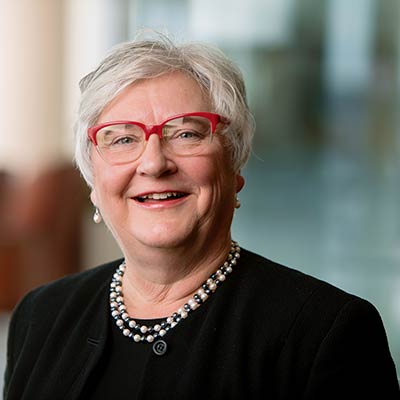 |
I was trained as a comparative physiologist and have transitioned to studies of the biological basis of disease in humans. Topic: How should we measure gender? |
| Virginia Miller Professor, Surgery and Physiology; Director, Women’s Health Research Center, Mayo Clinic Dr. Miller received her PhD in physiology from the University of Missouri, Columbia, MO USA. Her research interests focus on sex-steroid hormones influence development of cardiovascular disease and their relationship to cognitive function. She currently leads the Mayo Clinic Specialized Center for the Study of Sex Differences and the training program Building Interdisciplinary Careers in Women’s Health both of which are funded by the National Institutes of Health (USA). She also is Director of the Mayo Clinic Women’s Health Research Center. |
|
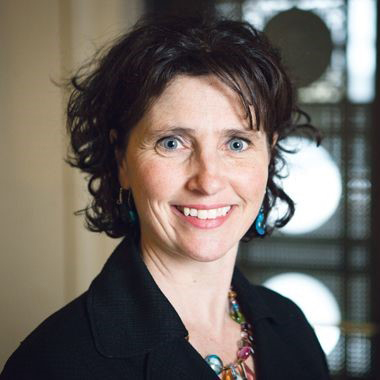 |
Catherine Morency is a civil engineer and professor at Polytechnique Montreal. She conducts research on sustainable mobility, travel behaviour analysis, survey methods and innovative use of large-scale urban data set. |
| Catherine Morency Professor, Department of Civil, Geological and Mining Engineering, Polytechnique Montréal Catherine Morency is a civil engineer and professor at Polytechnique Montreal. She is head of the Mobilité research chair on sustainable mobility as well as of a Canada Research Chair on Personal Mobility. Her research focus on travel behaviour analysis including all modes of transportation such as car, transit, taxi, active modes, bikesharing, carsharing, ridesharing and microtransit. Her research also focus on transport survey method and innovative processing of large-scale urban data. |
|
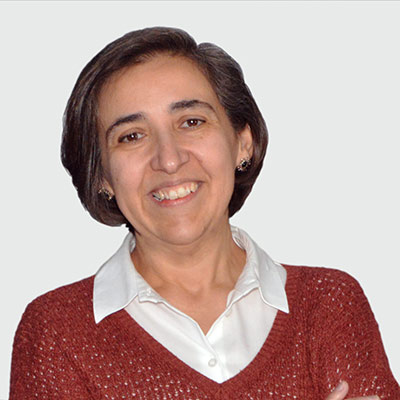 |
Professor of Physics, Physics Institute at the National Autonomous University of Mexico (UNAM) @cecilianoguezg |
| Cecilia Noguez Professor of Physics, Universidad Nacional Autonoma de Mexico Professor Noguez is well known for her contributions to our knowledge on the optical properties of nanoscale materials. Her pioneering research paved the way for novel concepts in this field. For her outstanding scientific contributions, she was the first women physicist in received the National Science Award (2016), the most important distinction in Mexico. Professor Noguez has a strong commitment to education, science popularization and academic service. She is an enthusiastic promoter of science at schools. |
|
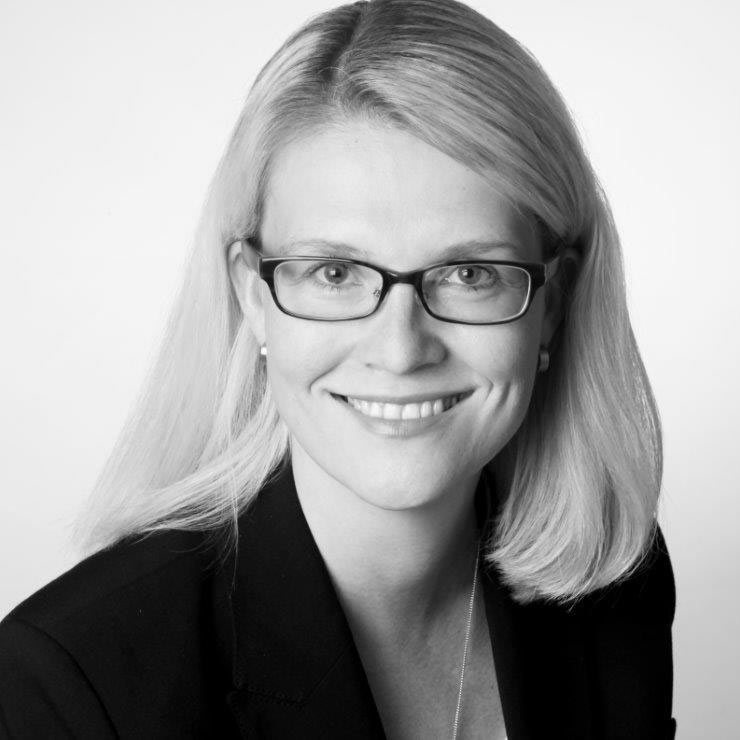 |
My focus is on the promotion of gender equality, early career researchers and international cooperation. I am looking forward to exchanging ideas and best practice. Topic: Equal Opportunities in Research and Academia – Advancing Gender Equity in the DFG Funding System |
| Sonja Ochensfeld-Repp Deputy Head, Division Quality and Programme Management, German Research Foundation Dr. Sonja Ochsenfeld-Repp has been Deputy Head of Division Quality and Programme Management, German Research Foundation, since 2016. Before she was Deputy Director of the European Liaison Office of the German Research Organisations. Her priorities lay on the funding opportunities of the ERC and the Marie Curie Actions. She is a fully qualified lawyer by training and has been awarded a doctoral degree from the University of Bonn. She has participated as a speaker in international conferences. |
|
 |
|
| Anne Pépin Senior Policy Officer, European Commission, DG Research and Innovation, Unit B7-Science with and for Society, Gender Sector From 2012 to June 2017, Anne Pépin was Director of the Mission for the Place of Women at the French National Centre for Scientific Research (Mission pour la place des femmes au CNRS), a strategic unit in charge of designing, coordinating and assessing all actions aimed at fostering gender equality within the organization. She is a CNRS senior researcher, holding a BSc in physics from the Université de Montréal (Canada), an Engineering Degree from the École supérieure d’électricité (France) and a PhD in electronics from the Université Paris 6 (France). Anne Pépin was awarded the CNRS Bronze Medal in 2003 for her contribution to nanotechnology, and was appointed Chevalière de l'Ordre national de la Légion d'Honneur in 2016. She was coordinator for EU FP7-funded projects INTEGER and GENDER-NET ERA-NET, and also represented CNRS within Science Europe's Working Group on Gender and Diversity. Since June 2017, Anne Pépin has been on leave from her CNRS position to join the Gender Sector of the European Commission's Directorate General for Research and Innovation as Senior Policy Officer. |
|
 |
|
| Joëlle Pineau Associate Professor of Computer Science; Co-director of the Reasoning and Learning Lab, McGill University/Facebook AI Research Lab Joëlle Pineau is an Associate Professor and William Dawson Scholar at McGill University where she co-directs the Reasoning and Learning Lab. Dr. Pineau’s research focuses on developing new models and algorithms for planning and learning in complex partially-observable domains. She also works on applying these algorithms to complex problems in robotics, health care, games and conversational agents. She is a Senior Fellow of the Canadian Institute for Advanced Research and in 2016 was named a member of the College of New Scholars, Artists and Scientists by the Royal Society of Canada. @rllabmcgill |
|
 |
|
| B. Mario Pinto President, NSERC/Président, CRSNG Dr. Pinto became President of NSERC in November 2014. Since then, he’s led the charge on NSERC 2020 - a plan to boost the dynamic relationship between discovery and innovation, increase diversity and equity in science, strengthen global connectivity, foster a stronger science culture and train the next generation of science and engineering leaders. He champions global connectivity to increase the power of the line of sight by embracing diverse perspectives. Dr. Pinto is also a champion of gender equity and inclusion of the two-spirit community in research and innovation. Dr. Pinto received his B.Sc. and Ph.D. in Chemistry from Queen’s University. He served as Professor, Chair of Chemistry and Vice-President Research at Simon Fraser University and is a Fellow of the Royal Society of Canada. He was recently elected Chair of the Global Research Council. @NSERC_CRSNG |
|
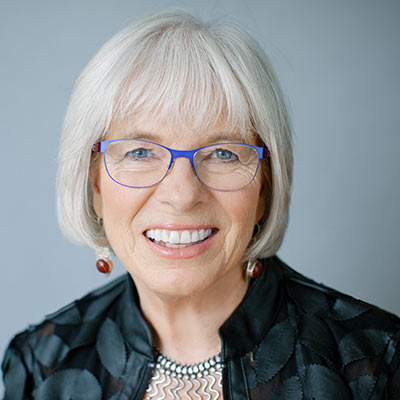 |
Astrid Pregel is the President of Feminomics, a boutique consulting firm working at the intersection of gender, leadership, entrepreneurship and the economy and believes passionately that empowered women are the key to achieving global prosperity and peace. Topic: Moving Past Unicorns and Competition: Gender and Innovation Beyond STEM @AstridPregel |
| Astrid Pregel President, Feminomics Astrid Pregel is the principal of Feminomics, a boutique consulting firm working at the intersection of gender, entrepreneurship, leadership, and the economy. Feminomics is focused on the economic empowerment of women and works with governments, international institutions and non-profits in advisory roles, creating policies and programs focused on women and their economic roles. Astrid’s global nomadic career as a Canadian Foreign Service executive taught her that economically empowered women are the key to achieving poverty alleviation, community and global prosperity and peace. |
|
 |
|
| Rémi Quirion Chief Scientist of Quebec In 2011, Professor Rémi Quirion became Québec’s first chief scientist, and as such, he chairs the boards of directors of the three Fonds de recherche du Québec and advises the Minister of Economics, Science and Innovation on research and scientific development issues. Until his appointment as chief scientist, Rémi Quirion was the vice-dean for science and strategic initiatives in the Faculty of Medicine at McGill University. He was the scientific director of the Douglas Mental Health University Institute Research Centre and a full professor in the department of psychiatry at McGill University. Professor Quirion was also the first scientific director of CIHR’s Institute of Neurosciences, Mental Health and Addiction (INMHA). Fellow of the Royal Society of Canada, he has received several honours, including the Ordre national du Québec (Chevalier du Québec) and the Order of Canada. @SciChefQC |
|
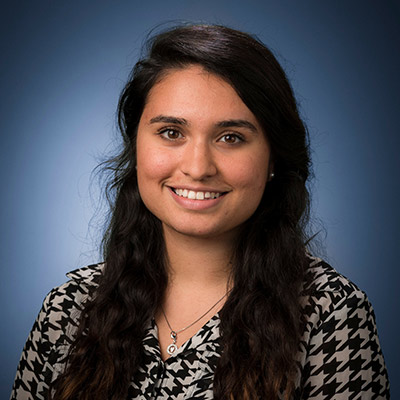 |
Founder & President of EngiQueers Canada – and hopes to transform how the Profession of Engineering talks about Diversity. @vanessa_raponi |
| Vanessa Raponi Founder and President, McMaster EngiQueers, McMaster University Vanessa Raponi is in her final year of Materials Engineering & Management at McMaster University. After Founding & being the President of the McMaster EngiQueers for 4 years, Vanessa transitioned to a national focus – Founding the governing body of EngiQueers Canada, and being elected President. She’s completed 28 months of co-op at Bombardier Aerospace, the Grenoble Institute of Technology in France, PepsiCo Canada and the not-for-profit Engineers of Tomorrow. Vanessa is a passionate changemaker eager to obtain her P.Eng. license. |
|
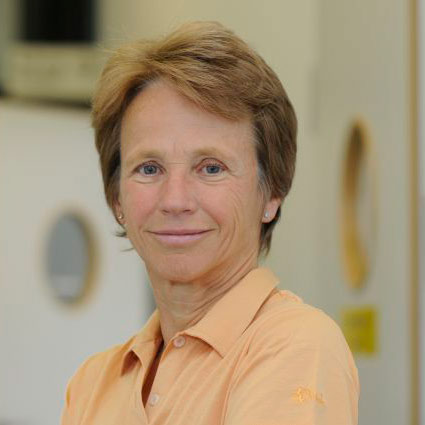 |
Topic: Gender medicine: recent developments in Europe |
| Vera Regitz-Zagrosek Director, Berlin Institute of Gender in Medicine, Center for Cardiovascular Research Cardiologist and founder of the Institute of Gender in Medicine and of the International Society Gender Medicine (IGM). Coordinator of 3 gender related European projects, EUGENMED - Roadmap to Gender implementation in Biomedicine, EUGIM -European Curriculum in Gender Medicine, and GENCAD - Gender in coronary artery disease. Coordinator of the first DFG Research projects on Sex and Gender, 2001 -2015, “Gender in myocardial hypertrophy” and the pilot project “Gender Medicine” (BMBF). Task Force Leader for the Guidelines “Cardiovascular Diseases in Pregnancy” of the European Society of Cardiology (ESC). Focus of work: sex- and gender specific mechanisms in cardiovascular diseases. |
|
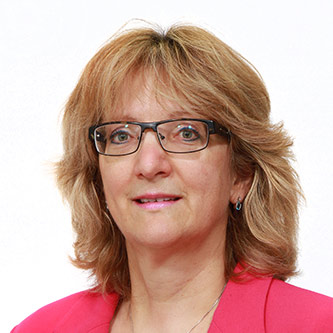 |
Married to an artist and comes from a family of five including two couples of twins. Topic: Equitable education to guide girls and women in STEM |
| Anne Roy Professor, Department of Educational Sciences, Université du Québec à Trois-Rivières (UQTR) Anne Roy, PH. D. is a professor in the Department of Educational Sciences at the Université du Québec à Trois-Rivières. Her main research interests are in mathematics education, philosophical approaches, the status of women in science, technology, engineering and mathematics (STEM) and supervision of teacher training. For the past two years, she has been vice-president of the Association de la francophonie on women in science, technology, engineering and mathematics (AFFESTIM). |
|
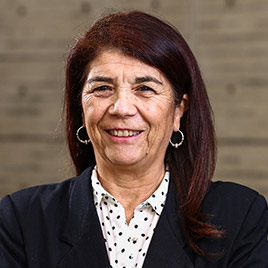 |
Female leader, professor, researcher and fighter for equal opportunities of women in society. Topic: Scientist Women in Universities: Achievements and Challenges in their Academic Careers. The Peruvian Case. |
| Patricia Ruiz Bravo Dean of the Social Sciences Faculty, Pontifical Catholic University of Peru and Representative of the Space for Women Leaders from Higher Education Institutions of the Americas (EMULIES) Patricia Ruiz-Bravo is the Director of the UNESCO PUCP Chair in Gender Equality for Higher Education Institutions. Recently appointed Dean of the Social Sciences Faculty at the Pontificia Universidad Católica del Perú. Social researcher specialized in rural development, education, culture, and gender. Consultant on development programs and project evaluation with specialization in gender and rural areas, including gender and methodological consulting for the Truth and Reconciliation Commission’s gender Team (2002-2003). Academic Director for University Social Responsibility (2009-2014) and Head of the Social Sciences Department (2005 to 2008). |
|
 |
Passionate advocate for entrepreneurs and innovators; believer in youth as catalysts of change; committed to building inclusive opportunities for women and underrepresented groups |
| Tracey Scarlett Dean of the JR Shaw School of Business at the Northern Alberta Institute of Technology (NAIT) Ms. Scarlett has an accomplished background in entrepreneurship and commercialization of health and technology. She is the Dean of the JR Shaw School of Business at the Northern Alberta Institute of Technology (NAIT). NAIT is a leading Canadian polytechnic, known for hands-on, technology-based learning, and for engaging with business and industry in applied research and innovation. Previously, Ms. Scarlett was Chief Executive Officer of Alberta Women Entrepreneurs, a non-profit organization. Before that, she was President of BioQuest Ventures Inc., a business development company serving businesses in high-growth and innovation sectors. She was also Chief Operating Officer of KMT Hepatech Inc., a biotechnology start-up, and co-founded an electrical contracting company. Tracey Scarlett joined the BDC Board of Directors in 2017. As well, she is Vice Chair of Travel Alberta, a council member of the Natural Sciences and Engineering Research Council and sits on the board of Global Edmonton Woman of Vision. Ms. Scarlett holds a diploma in Medical Laboratory Technology from NAIT, a Bachelor of Science in Medical Laboratory Science from the University of Alberta and an MBA with a specialization in Technology Commercialization from the Alberta School of Business at the University of Alberta. |
|
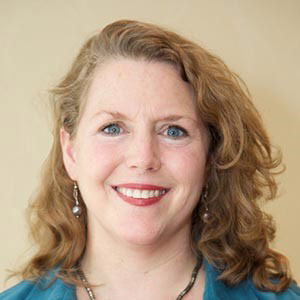 |
Through my work with the Elsevier Foundation, I see myself as a partnership builder and am able to tap my rich SDG-driven networks to create new synergies both within my organization and externally. Topic: Sex and gender knowledge: evolving the SDG’s at Elsevier @Ylann.schemm |
| Ylann Schemm Program Director, Elsevier Foundation As the Director of the Elsevier Foundation, Ylann drives a new generation of programs which focus on advancing diversity in science, building research capacity, global health and embedding technology across the entire portfolio. She also serves as Elsevier’s Director of External Partnerships within Elsevier’s Global Communications group, working across the organization to develop in depth collaboration with knowledge driven organizations. She chairs the communications team for Research4Life, a unique UN-pan publisher partnership to provide free and low cost access to researchers in the developing world. |
|
 |
|
| Londa Schiebinger John L. Hinds Professor of History of Science, Stanford University, and Director of the EU/US Gendered Innovations in Science, Health & Medicine, Engineering, and Environment Project (United States) Londa Schiebinger is the John L. Hinds Professor of History of Science at Stanford University and Director of Gendered Innovations in Science, Health & Medicine, Engineering, and Environment (genderedinnovations.stanford.edu). A leading international expert on gender in science and technology, she has addressed the United Nations on the topic of “Gender, Science, and Technology.” She is a member of the American Academy of Arts and Sciences and the recipient of numerous prizes and awards. |
|
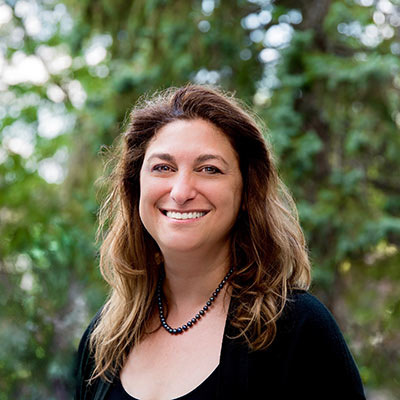 |
|
| Allison Sekuler Sandra A. Rotman Chair in Cognitive Neuroscience; Senior Scientist, Rotman Research Institute; Vice-President Research, Baycrest Hospital; Professor, Psychology, University of Toronto; Professor, Psychology, Neuroscience & Behaviour, McMaster University Dr. Allison B. Sekuler (BA in Mathematics and Psychology, Pomona College; PhD in Psychology, University of California, Berkeley) is the Sandra A. Rotman Chair in Cognitive Neuroscience, Senior Scientist in the Rotman Research Institute, and Vice-President Research, Baycrest Health Sciences. She also is a Professor in Psychology at the University of Toronto and in Psychology, Neuroscience and Behaviour at McMaster University. Her research focuses on cognitive neuroscience, visual perception, neural plasticity and learning, and aging, and she was the first Canada Research Chair in Cognitive Neuroscience (2001-2011). Before joining Baycrest, Dr. Sekuler championed research and research training, and equity, diversity and inclusivity, in a number of key administrative roles at McMaster University including Strategic Advisor to the President and Vice-Presidents on Academic Issues, interim Vice-President Research, Associate Vice-President and Dean of Graduate Studies, and Associate Vice-President Research. Dr. Sekuler is Group Chair of NSERC’s Scholarships & Fellowships Selection Committees, and a member of NSERC’s Committee for Discovery Research. She co-founded FoVea (Females of Vision et al.) and is leading development of a novel virtual mentoring program for Women in Science and Engineering (@mentorsWISE). |
|
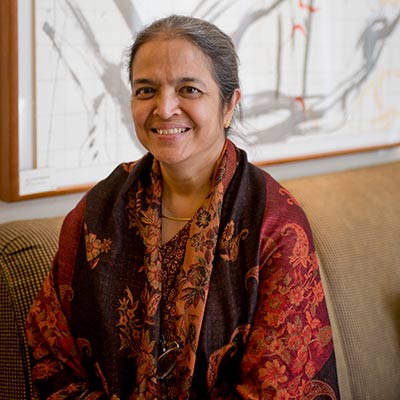 |
I work on the causes and consequences of gender inequality and injustice in low income settings, and how to tackle them through research, advocacy and activism. Topic: Overcoming “deep poverty”: intersectionality as a critical policy approach in LMIC contexts @gita_sen |
| Gita Sen Distinguished Professor (& Director) of Ramalingaswami Centre on Equity & Social Determinants of Health at the Public Health Foundation of India I have over 35 years of experience working nationally and internationally on gender equality and women’s human rights. I hold a PhD in Economics from Stanford University. I am Distinguished Professor and Director of the Ramalingaswami Centre on Equity and Social Determinants of Health at PHFI, and adjunct professor of global health and population at Harvard University. I am General Co-Coordinator of the South-based feminist network, DAWN (Development Alternatives with Women for a New Era). |
|
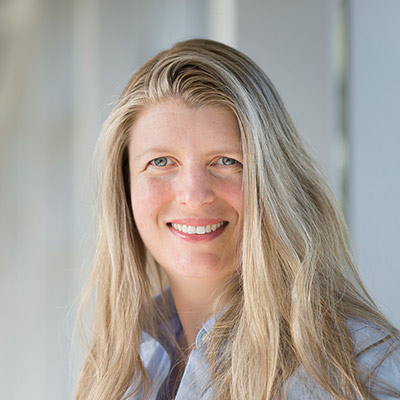 |
Dr. Lesley Shannon is an Associate Professor of Computer Engineering at Simon Fraser University and the NSERC Chair for Women in Science and Engineering for the BC/Yukon Region. Topic: Diversity, sex and gender-based analysis in targeted STEM fields @drlesleyshannon |
| Lesley Shannon Associate Professor, School of Engineering Science, Simon Fraser University, NSERC CWSE, BC and Yukon Dr. Lesley Shannon is an Associate Professor of Computer Engineering at Simon Fraser University. She studies computer systems design, a rapidly growing field that combines custom computing hardware and software to design and implement application-specific computer systems. Dr. Shannon is also the current NSERC Chair for Women in Science and Engineering (BC/Yukon) which operates as Westcoast Women in Engineering, Science and Technology (WWEST.ca). |
|
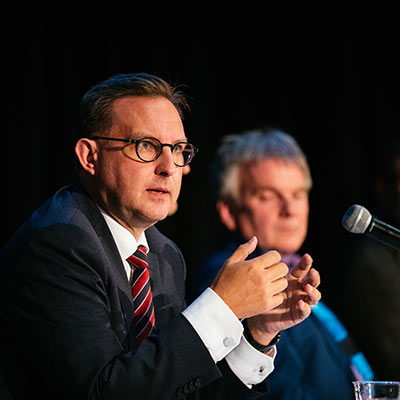 |
Paul Smith’s work focuses on the intersection of science and economy, of creative discovery and commercialization. Le champ d’intervention de Paul Smith se situe à la rencontre de la science et de l’économie, de la découverte créatrice et de la commercialisation. @xerox |
| Paul Smith Vice President and Centre Director, Xerox Research Centre of Canada Smith leads the Global Materials Research Centre, which is responsible for advanced materials research and development. In partnership with the National Research Council of Canada, he spearheaded the creation of the Canadian Campus for Advanced Materials and Manufacturing – a government/industry partnership for research and development in the commercialization of Advanced Materials. He received his PhD in Chemistry from the University of Bath, England and his MBA from the Rotman School of Management, at the University of Toronto. |
|
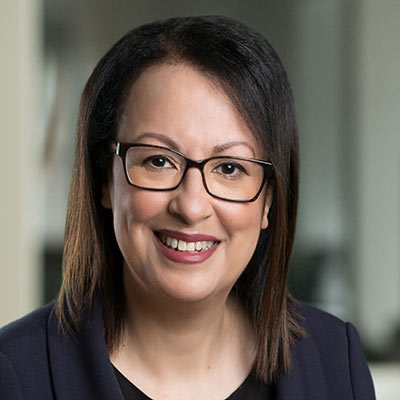 |
An award-winning engineer, Jeanette Southwood is VP, Strategy and Partnerships, at Engineers Canada, and a recipient of Women of Innovation, an OPEA medal, the WXN Top 100 and an honorary doctorate. @EngineersCanada |
| Jeanette M. Southwood Vice-President, Strategy and Partnerships, Engineers Canada Award-winning engineer Jeanette Southwood is VP, Strategy and Partnerships, at Engineers Canada, the national organization of the 12 regulators that license Canada's more than 290,000 members of the engineering profession. Prior to joining Engineers Canada, she led the Canadian Urban Development & Infrastructure Sector and the Global Sustainable Cities teams at a global consulting firm. She is a recipient of Women of Innovation, an OPEA medal, the WXN Top 100 and an honorary doctorate. |
|
 |
Topic: Shifting power: Creating diverse and inclusive senior leadership teams and boards @SherriA_Stevens |
| Sherri Stevens CEO and President, Women’s Executive Network and Canadian Board Diversity Council Sherri Stevens, President and CEO of WXN and CBDC and founder and President of SRG, is an award-winning entrepreneur and visionary. As a lifelong advocate for diversity and as CEO of WXN, Canada’s leading organization dedicated to the advancement and recognition of women in management, executive and professional board roles, Sherri takes great pride in the crusade to support and inspire smart women to lead and to use their collective impact to break barriers and shatter ceilings. |
|
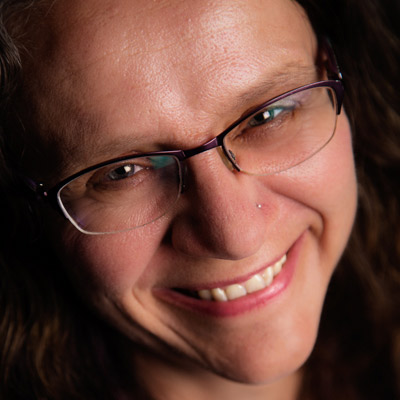 |
Deborah describes herself as passionately involved in feminist disability research, teaching/learning and collaboration. @dstienstra |
| Deborah Stienstra Jarislowsky Chair in Families and Work, Professor, Political Science and Director, Centre for Families, Work and Well-being, University of Guelph Deborah Stienstra holds the Jarislowsky Chair in Families and Work at the University of Guelph and is the director of the Centre for Families, Work and Well-being there. Previously she was a professor of Disability Studies at University of Manitoba. She has published broadly in the area of disability rights and policies, global development and disability, and women and disabilities. Her research and publications explore the intersections of disabilities, gender, childhood, and Indigenousness, identifying barriers to, as well as possibilities for, engagement and transformative change. |
|
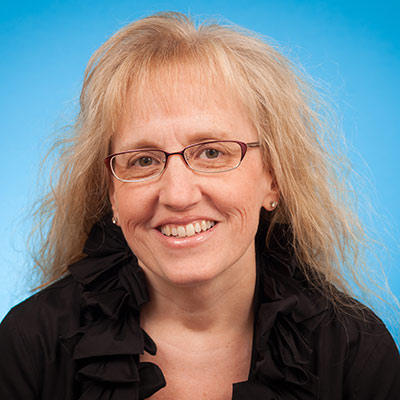 |
|
| Sharon Straus Professor of Medicine, and Director, Knowledge Translation Program, University of Toronto Sharon E. Straus is a geriatrician and clinical epidemiologist who trained at the University of Toronto and the University of Oxford. She is the Director of the Knowledge Translation Program and Deputy Physician-in-Chief, St. Michael’s Hospital; Director, Division of Geriatric Medicine, University of Toronto; Vice Chair, and Professor, Department of Medicine, University of Toronto. She holds a Tier 1 Canada Research Chair in Knowledge Translation and Quality of Care and has authored more than 400 publications and 3 textbooks in evidence-based medicine, knowledge translation and mentorship. She is in the top 1% of highly cited clinical researchers as per Web of Science. She holds more than $57 million in peer reviewed research grants as a principal investigator. She has received national awards for mentorship, research and education. |
|
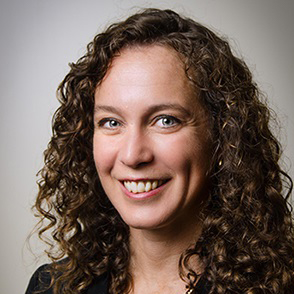 |
Dr. Cara Tannenbaum promotes consideration of sex and gender in research and champions gender equity in funding. @cara_tannenbaum |
| Cara Tannenbaum Scientific Director, CIHR Institute of Gender and Health Dr. Cara Tannenbaum is the Scientific Director of the Institute of Gender and Health (IGH) at the Canadian Institutes of Health Research. Dr. Tannenbaum obtained her medical, specialist and research degrees at McGill University. She is a Full Professor in the Faculties of Medicine and Pharmacy at the Université de Montréal, where she holds the Chair in Pharmacology, Health and Aging. Her research focuses on sex and gender differences in drug safety. As Scientific Director of IGH, Dr. Tannenbaum works to foster research that can improve the health of boys, girls, men, women and gender-diverse people. |
|
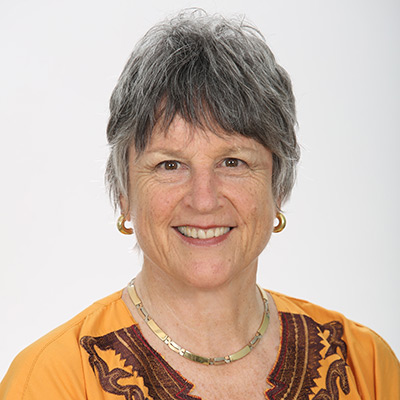 |
Scientist working in genetic engineering of plants for Africa with a passion for the development of women in science in the developing world. Topic: Turning the Gender Lens on the new South African White Paper on Science and Technology |
| Jennifer Thomson President and Emeritus Professor, Organisation for Women in Science for the Developing World Jennifer Thomson is Emeritus Professor in the Department of Molecular and Cell Biology at the University of Cape Town. She won the L’Oreal/UNESCO prize for Women in Science for Africa in 2004 and has an Honorary Doctorate from the Sorbonne University. Her research field is the development of genetically modified maize resistant to the African endemic maize streak virus and tolerant to drought. She is President of the Organization for Women in Science for the Developing World. |
|
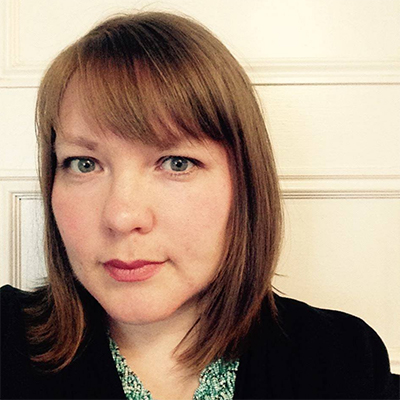 |
A Métis (otipemisiw) scholar teaching Anthropology (human-animal relations, Métis legal traditions) at Carleton University. Topic: Applying Indigenous (Métis) feminisms in everyday research praxis |
| Zoe Todd Assistant Professor, Department of Sociology and Anthropology, Carleton University Zoe Todd (Métis/otipemisiw) is from Amiskwaciwâskahikan (Edmonton), Alberta, Canada. She writes about fish, art, Métis legal traditions, the Anthropocene, extinction, and decolonization in urban and prairie contexts. She also studies human-animal relations, colonialism and environmental change in north/western Canada. |
|
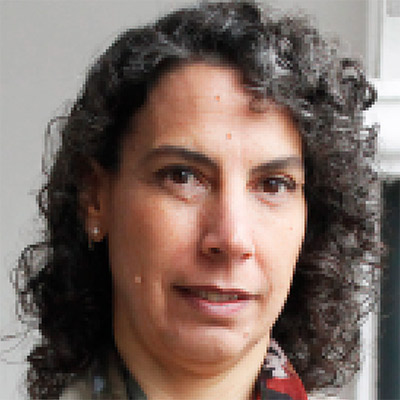 |
Applied researcher in issues regarding economic and social inclusion and a Latin American advocate for social inclusion. Topic: Gender Gaps in Social Sciences Scientific Production |
| Carolina Trivelli Senior Researcher, Instituto de Estudios Peruanos Carolina Trivelli, currently works as Senior Researcher at Instituto de Estudios Peruanos (IEP). Ms. Trivelli is an Economist and holds a MSc in Agricultural Economics from Pennsylvania State University. She serves as President of the Board of Pagos Digitales Peruanos S.A., she is a member of the Board of Colegios Peruanos-Innova Schools and the International Advisory Board of RIMISP (Latin American Center for Rural Development). She serves as Chair of the Executive Committee of CGAP (Consultative Group to Assist the Poor) and as an independent member at the Board of the Global Innovation Fund (GIF). She is also part of the Technical Advisory Committee on Measuring Poverty (INEI) and the Fiscal Committee of Peru, an independent body appointed to oversee the fiscal policies of the country. She is currently a columnist for Peru 21, a national newspaper. She is a former Minister of Development and Social Inclusion of Peru. Ms. Trivelli specializes in issues regarding social policy, rural development and financial inclusion. |
|
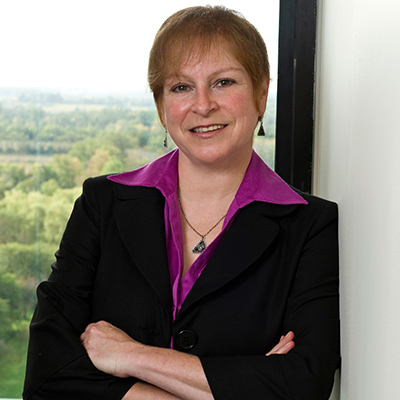 |
Brock University UNESCO Chair in Community Sustainability, the President of the Coalition of Women in Engineering, Science, Trades and Technology and President-Elect of the International Network of Women Engineers and Scientists. Topic: Developing a vision of inclusiveness: global challenges at work and home @VasseurLiette |
| Liette Vasseur Professor of Biology, UNESCO Chair in Community Sustainability: from local to global, Brock University Vasseur is a full professor in Biological Sciences and holds the UNESCO Chair on Community Sustainability: from local to global at Brock University. Her interdisciplinary research program focuses on community-based ecosystem management, climate change, and sustainable agriculture in Canada, China and Ecuador. She is President of the Canadian Coalition of Women in Engineering, Science, Trades and Technology and President-Elect of the International Network of Women Engineers and Scientists. |
|
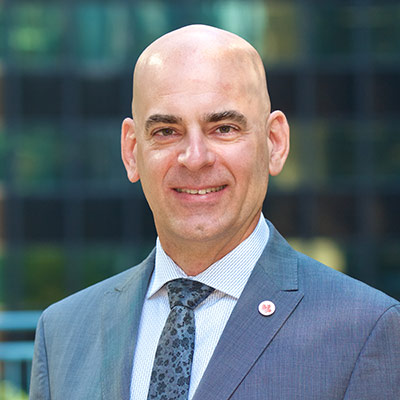 |
Gender-Based Analysis+ Champion for NSERC, Chair of GS11 Regional Steering Committee and fan of progressive rock music @Ville17serge |
| Serge Villemure Director, Scholarships & Fellowships, Chairs for Women in Science and engineering, NSERC Serge Villemure graduated in 1989 with a BSc in Kinesiology and obtained his Masters in 1991 in Administration from the University of Ottawa. He is the Director of Scholarships, Fellowships and Chairs for Women in Science and Engineering Programs at NSERC. He is also responsible for integrating diversity and gender equity considerations into policies and programs, and for facilitating Gender-Based Analysis Plus capacity building across the Agency. To maintain a well-balanced life, Serge cycles to work, and also enjoys yoga and golf. |
|
 |
Champion du CRSNG – Analyse comparative entre les sexes+, président du comité de direction régional GS11 et amateur de rock progressif @Ville17serge |
| Serge Villemure Directeur, Programmes de bourses, et responsable du Programme des chaires pour les femmes en sciences et en génie, CRSNG Serge Villemure a obtenu son baccalauréat (1989) en kinésiologie et sa maîtrise (1991) en administration de l’Université d’Ottawa. Il est directeur des programmes de bourses et de chaires pour les femmes en sciences et en génie du CRSNG. Il a également la responsabilité d’intégrer les considérations de diversité et d’égalité entre les sexes dans les politiques et programmes du Conseil. Il facilite également l’intégration de l’analyse entre les sexes plus au sein de l’organisation. Pour garder l’équilibre vie professionnelle et vie personnelle, Serge se rend au travail à vélo durant les belles saisons, et pratique aussi le yoga et le golf. |
|
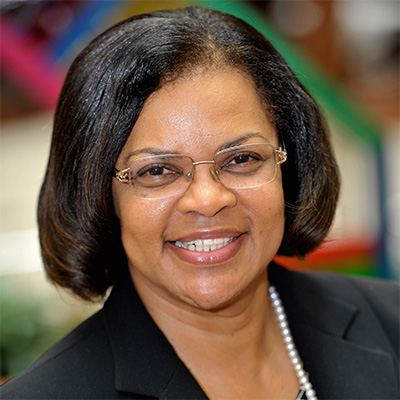 |
Advancing Excellence and Innovation by Reducing the Impact of Bias in the STEM Workforce |
| Wanda Ward Senior Advisor, National Science Foundation Dr. Wanda E. Ward serves as Senior Advisor, Office of the Director, U.S. National Science Foundation (NSF). From 2015-2017 she served as Assistant Director for Broadening Participation at the White House Office of Science and Technology Policy. Ward has led or co-led development of several NSF-wide activities, including the Human and Social Dynamics priority area, the Science of Learning Centers program, Cyberinfrastructure and the Social Sciences, the ADVANCE program, the Innovation through Institutional Integration activity, and the Career-Life Balance initiative. |
|
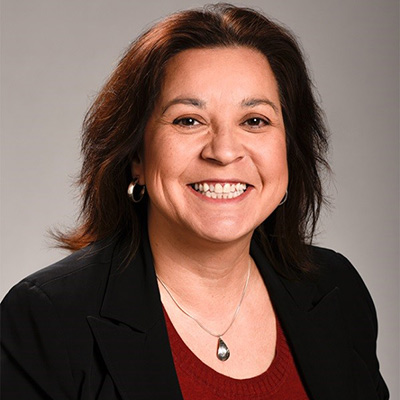 |
Gina is a mother, grandmother and a member of the Algonquin nation. She is a senior leader in Canada's public service dedicated to diversity, inclusion, women and indigenous issues. @ginawilson1967 |
| Gina Wilson Deputy Minister, Status of Women Canada Gina Wilson began her career in her First Nation community of Kitigan-Zibi as Executive Director of Health and Social Services and as Director of the Wanaki Treatment Centre. Ms. Wilson was a Senior Manager with the Assembly of First Nations (AFN), a national Aboriginal organization representing First Nation communities in Canada when she joined the Federal Government in 1996. On May 23, 2017 Gina Wilson was appointed Deputy Minister of Status of Women Canada. |
|